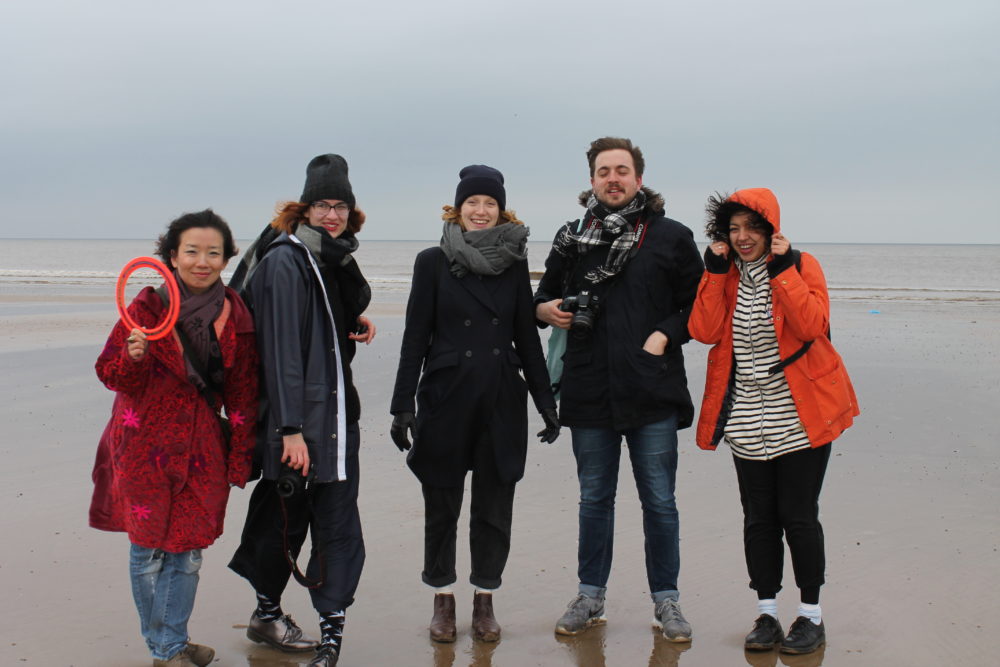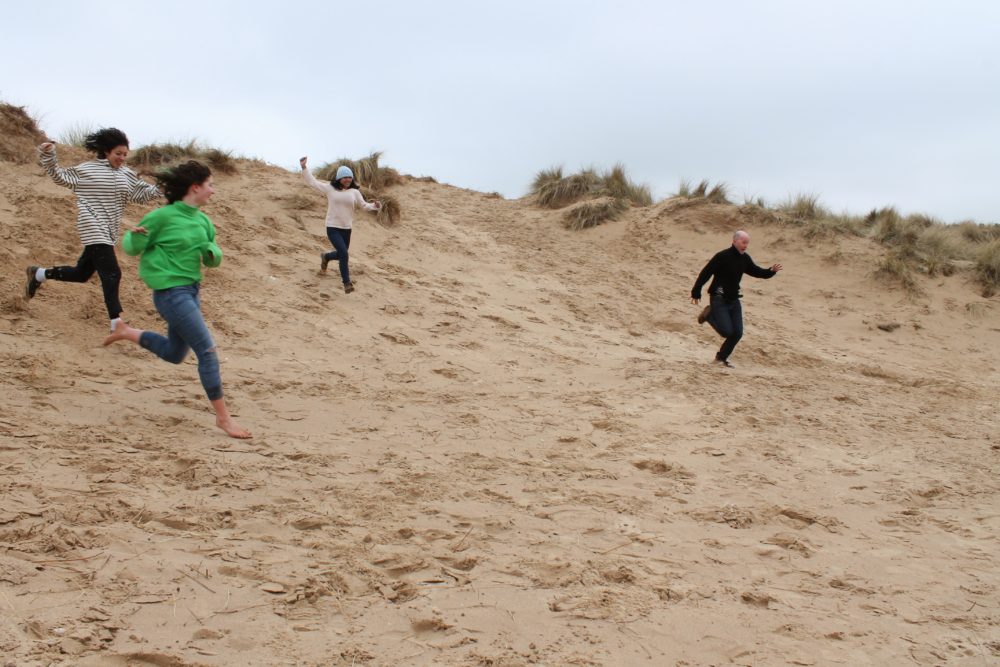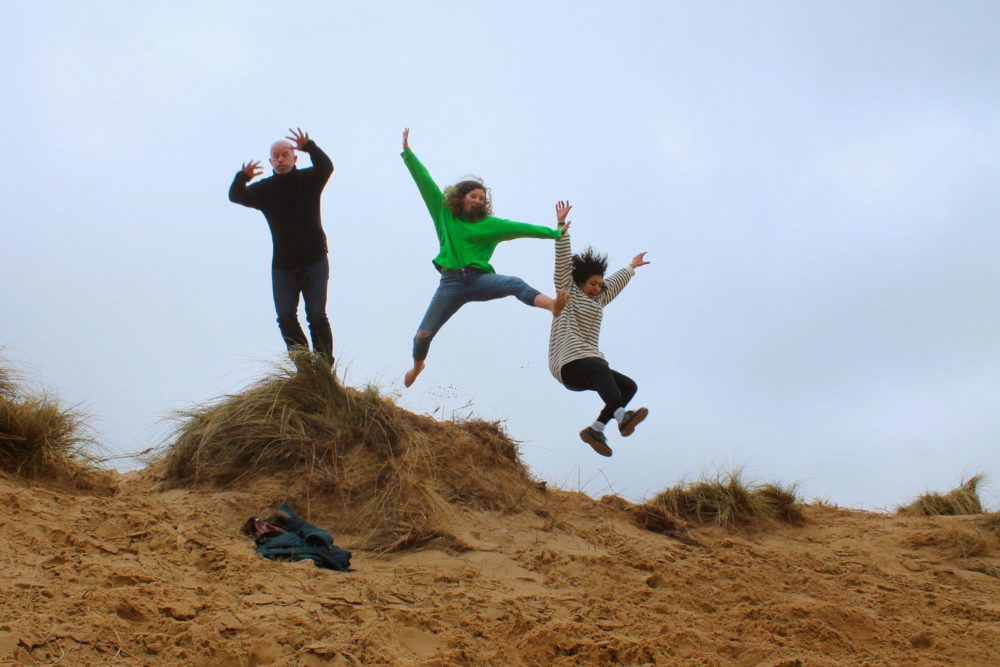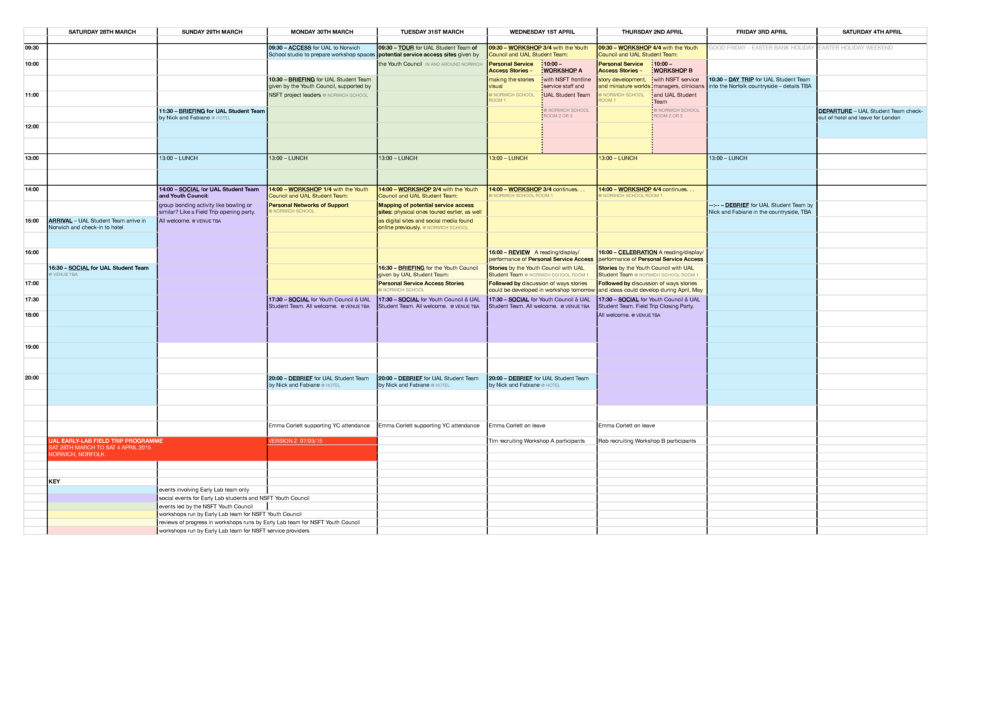A week-long field trip in Norfolk: youth mental health with NSFT
The Early Lab student team runs a week of workshops in Norwich with NSFT's Youth Council (service users), clinicians and representatives of regional service provision. The aim is to help all participants imagine a compelling new vision for a totally transformed regional mental health service for children and young people, how it would function and what it would look like.
28 March to 4 April 2015: an account of workshop activities on the field trip in Norwich.
Film of the project so far
Above. A film of the project so far, up to and including the field trip. Shot and edited by Gareth Johnson, 2015.
The programme
The venue
Early Lab used the excellent art and design studio facilities of Norwich School located in a quiet and beautiful close beside the cathedral. All but two members of NSFT’s Youth Council (their service users) made journeys from other parts of the region and stayed close-by in hotels. All participants found the tranquility of the location reassuring.
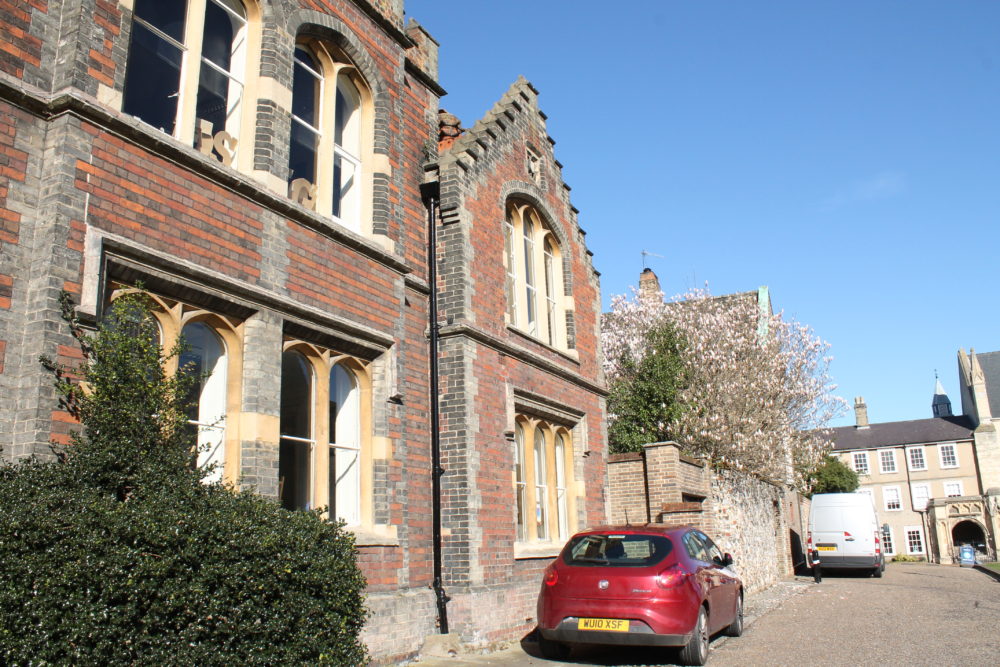
Day 1, morning: getting started
After the usual introductions, the week began with the Early Lab student team inviting the NSFT Youth Council members to spend the morning sharing their individual experiences of accessing youth mental health services. This they did supported in the background by NSFT clinicians.
The session enabled the team to piece together an emerging sense of how regional mental health services operate through these very specific examples of first-hand experience of it. Examples that presented a variety of service-access issues through which the complexity of the project challenge gradually came into view. The student team listened intently, asked questions, took pages of notes and in doing so lay the foundations for a connection with the Youth Council members that would strengthen as the week progressed.
As a result the Early Lab team could now begin the first workshop that afternoon much better informed. The Youth Council could proceed with a degree of reassurance: they were working with a team of students who were investing time, attentiveness and care to finding out more about the things they value and are affected by.
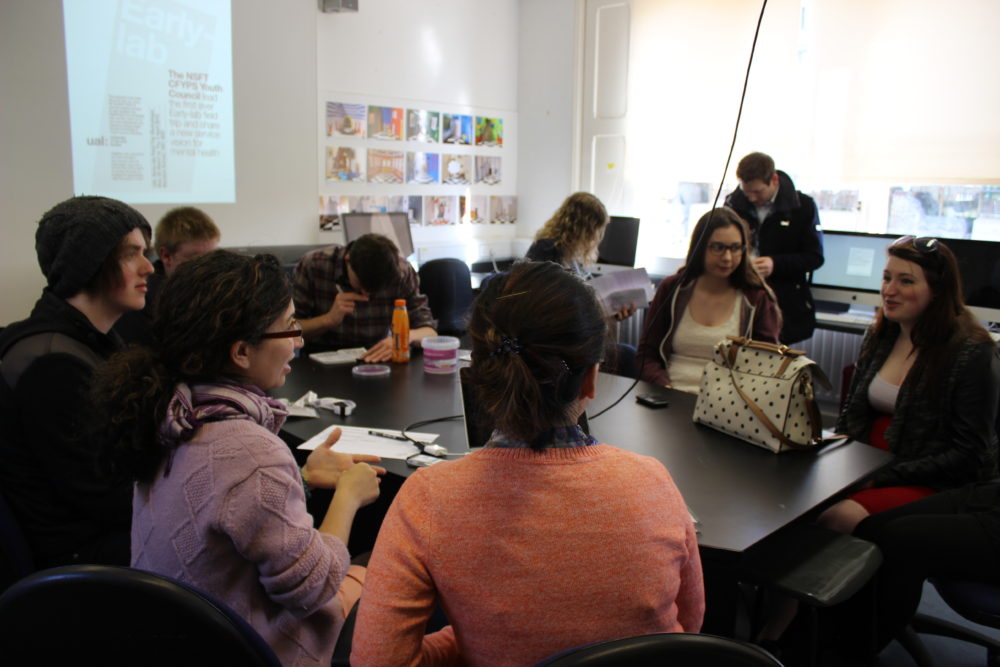
Workshop themes: people, places, stories
Early Lab planned for the workshops with the Youth Council to enable the working through of three interpenetrating themes:
- people: the personal networks of support of Youth Council members
- places: a tour of potential service locations by the Youth Council
- stories: telling the service-access stories of the Youth Council
Day 1, afternoon: workshop 1 – people
In this workshop, focussing on the theme of people, the Youth Council were invited to map their own personal networks of support: who are the people they like to talk to and where are they located? Family, friends, people in school, in work, peer support people, service managers/carers/ clinicians etc. Is their network resilient? What is the shape of it? In what different scenarios do the various parts of the network come in to play? How compatible is their network with a map of potential service provision points?
To lighten the task the Youth Council members were asked to make their map using crochet yarn (with help from student team members). Not only was the aim to make the session more fun but also to reduce the literalness with which the maps are drawn and allow them to be poetic or coded – objects that can invite multiple interpretations, provoke discussion and need to be explained. Early Lab student team members helped each Youth Council member attach their colourful, woven maps to stretched canvases for presentation.
All participants found the experience of this workshop very positive and for some it was energising. This was a huge relief since although the morning discussion was rewarding for both sides (service users and students), it was very intense, emotionally draining for everyone. The atmosphere during the workshop in the afternoon was much lighter and it was felt that this was a result of the making going on. That it was a communicative activity hinging on non-verbal exchange seemed to explain this – the making allowed for lots of small instances of informal conversation to crop up and peter out naturally in an unstructured way. There was also a serene silence: figuring out how best to put the materials to expressive use (yarn, buttons, paper, foam sheets, baggage labels) allowed for a shared silent rumination to take over the room at times.
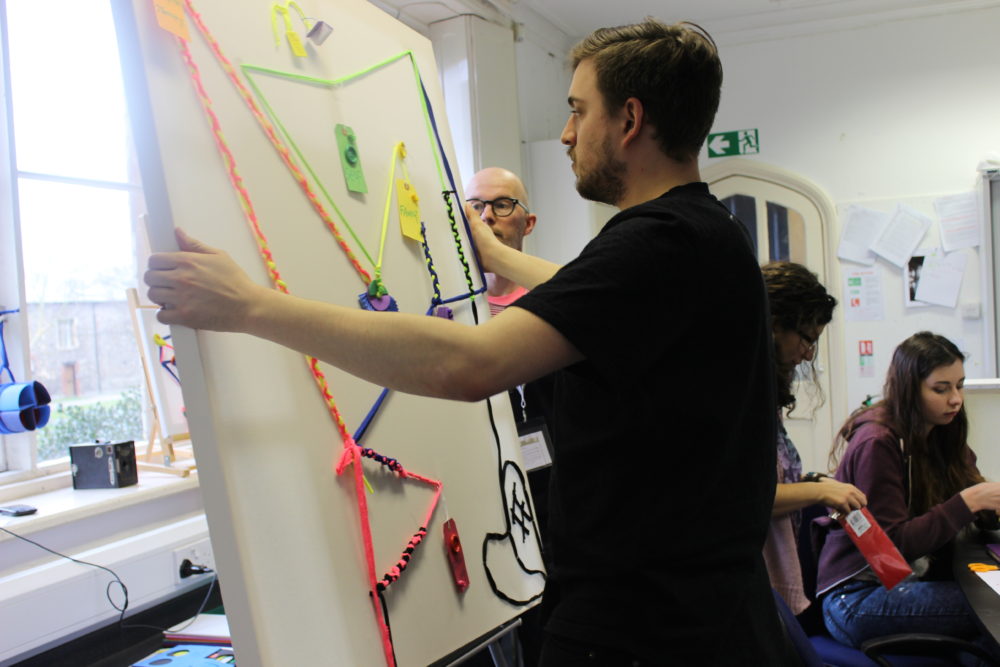
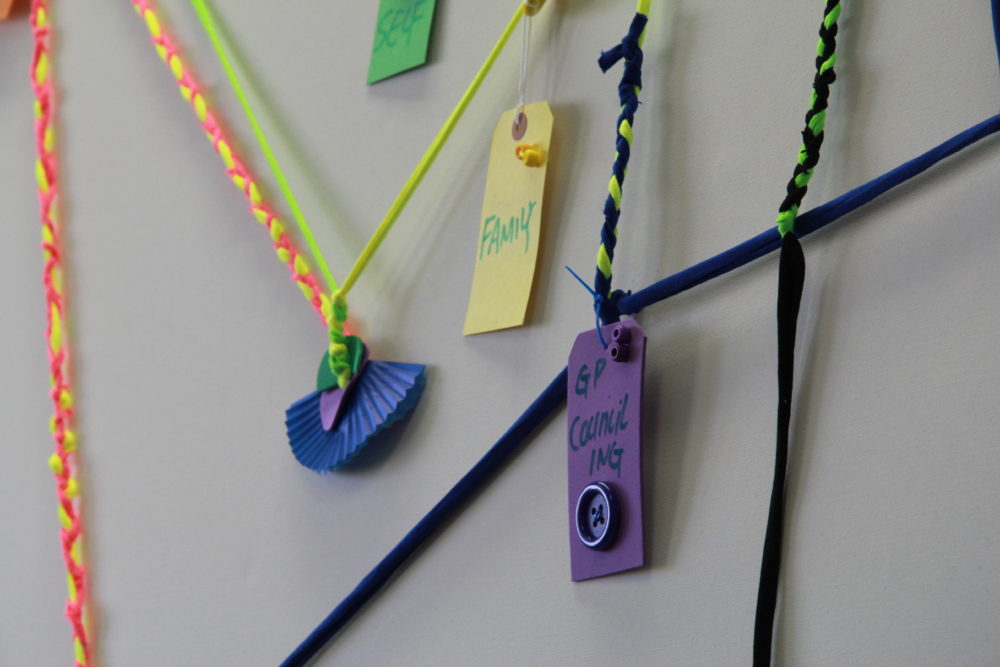
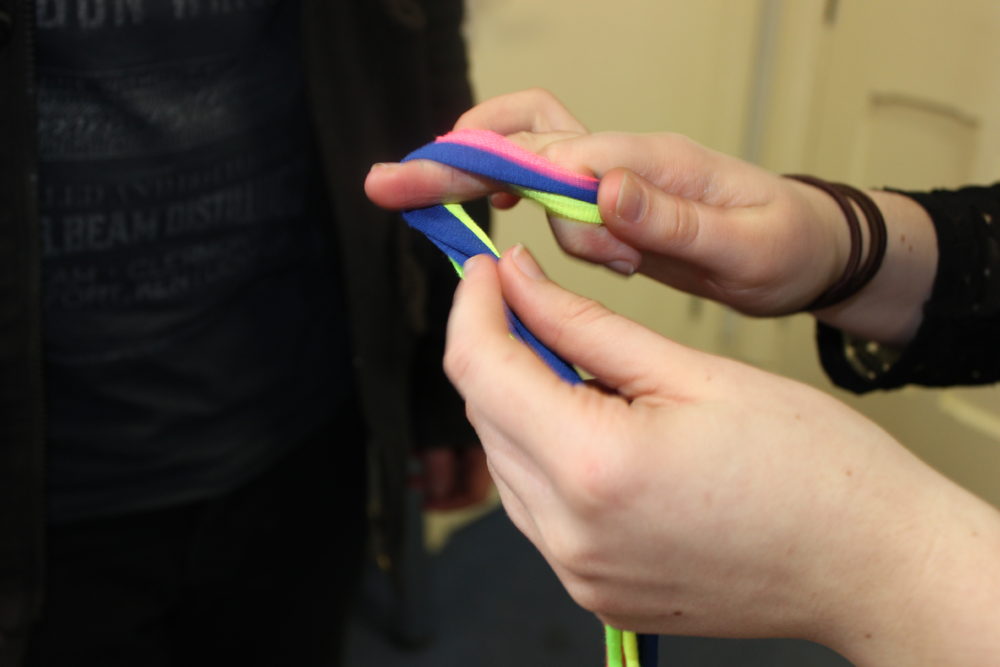
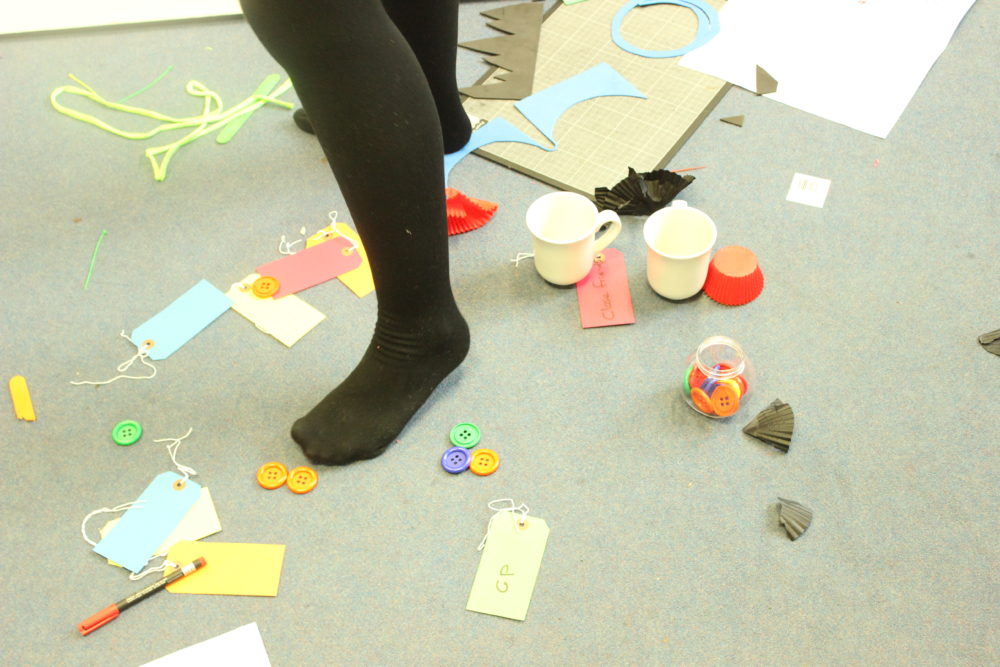
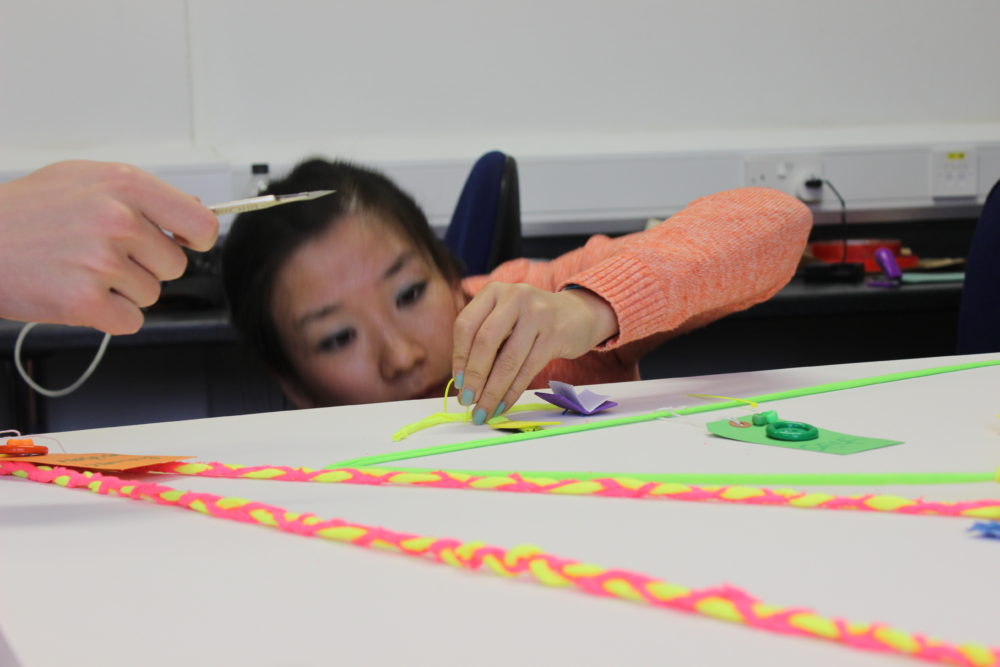
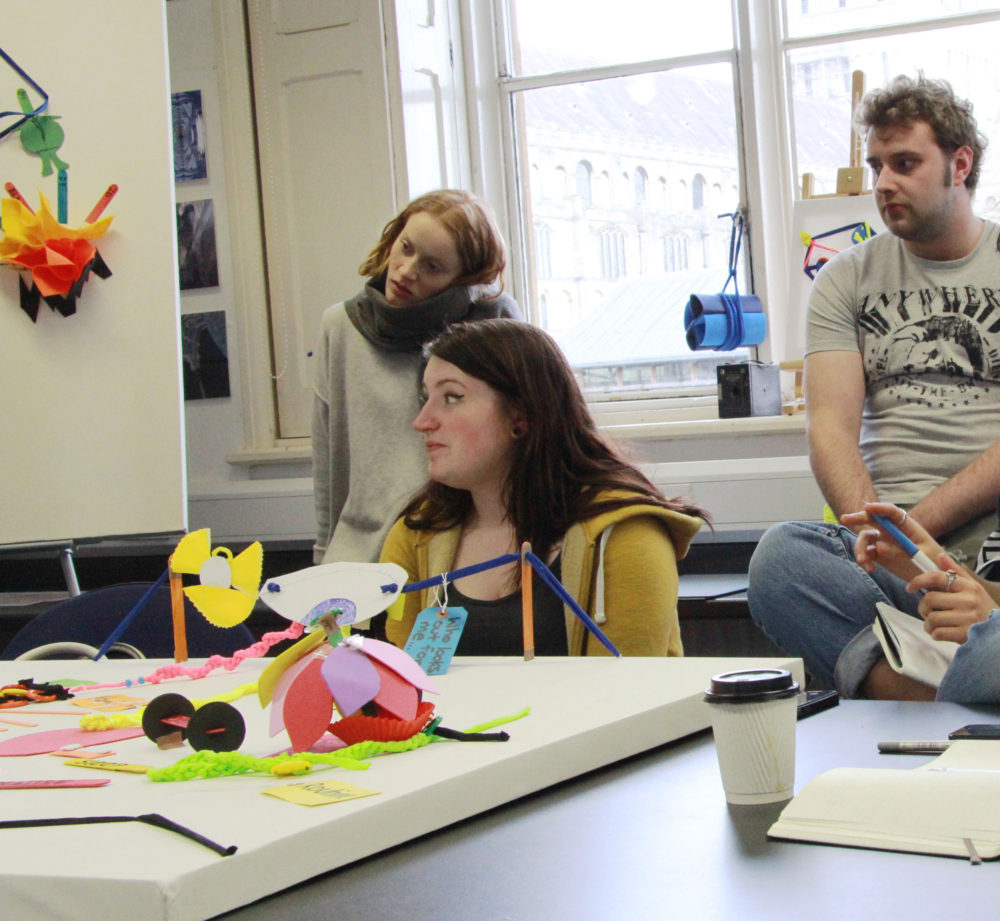
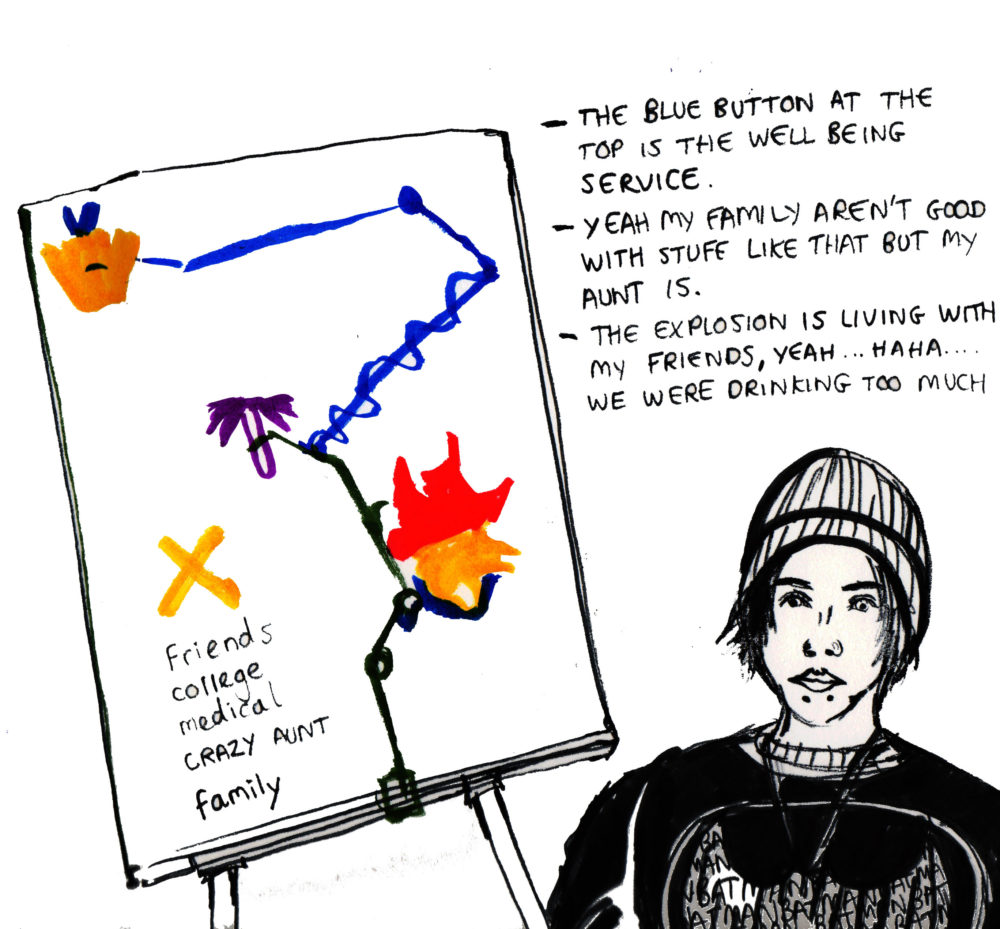
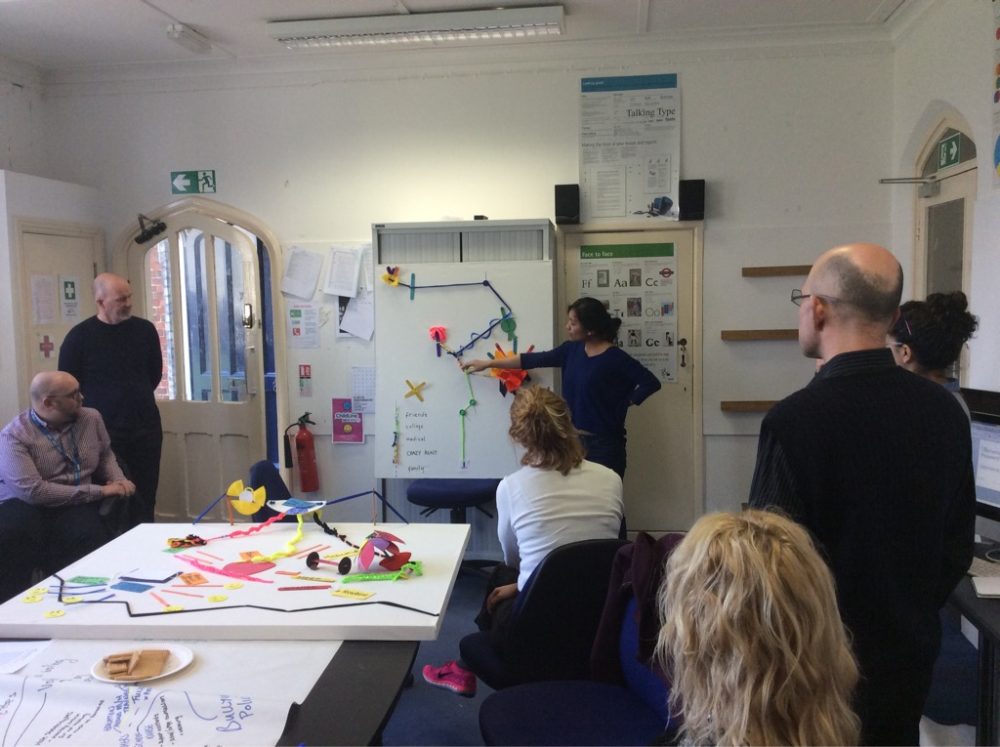
Day 2, morning: workshop 2 – places (physical)
The NSFT Youth Council take the Early Lab team on a tour of central Norwich (their territory, putting them in control). A tour that gets a discussion going about what kind of places/spaces could make great service locations. What are the crucial ingredients of these places/spaces? Atmosphere, design, activities, people, accessibility, facilities? Looking at the city for its potential to provide alternative sites of access to mental health services.
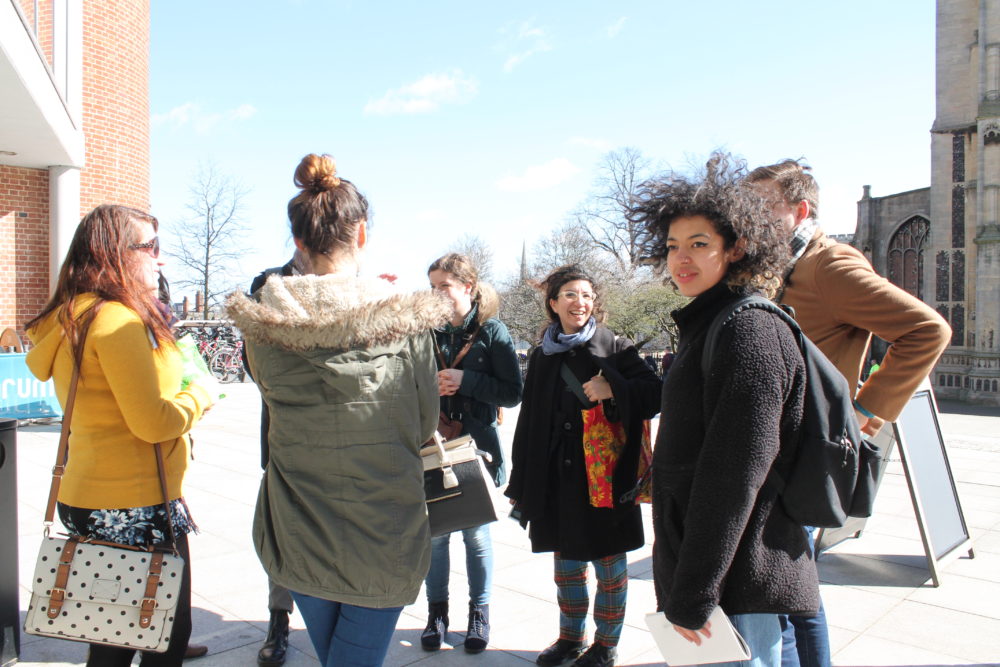
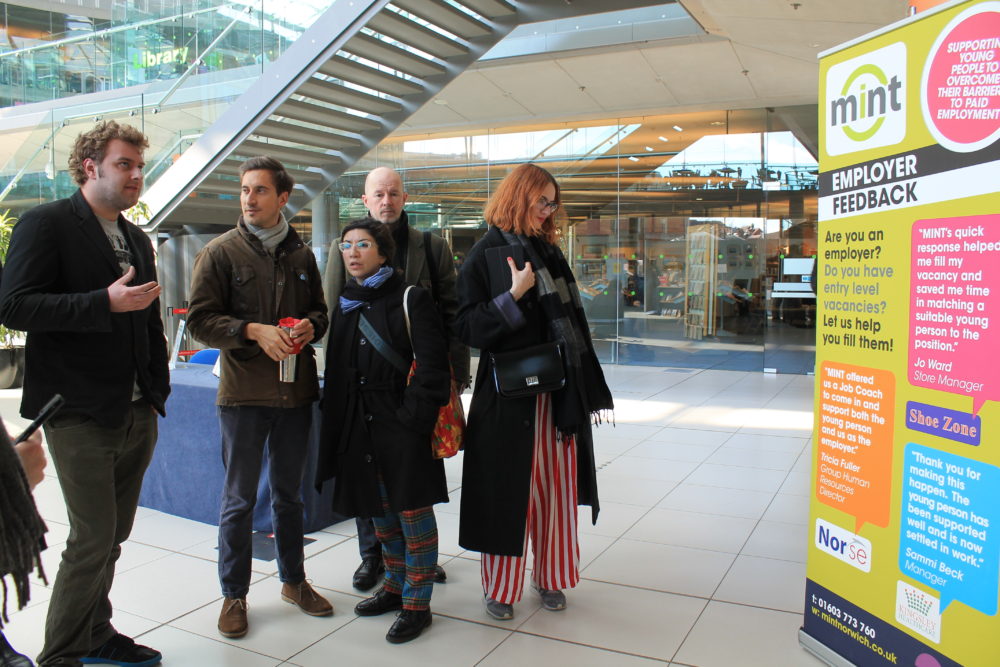
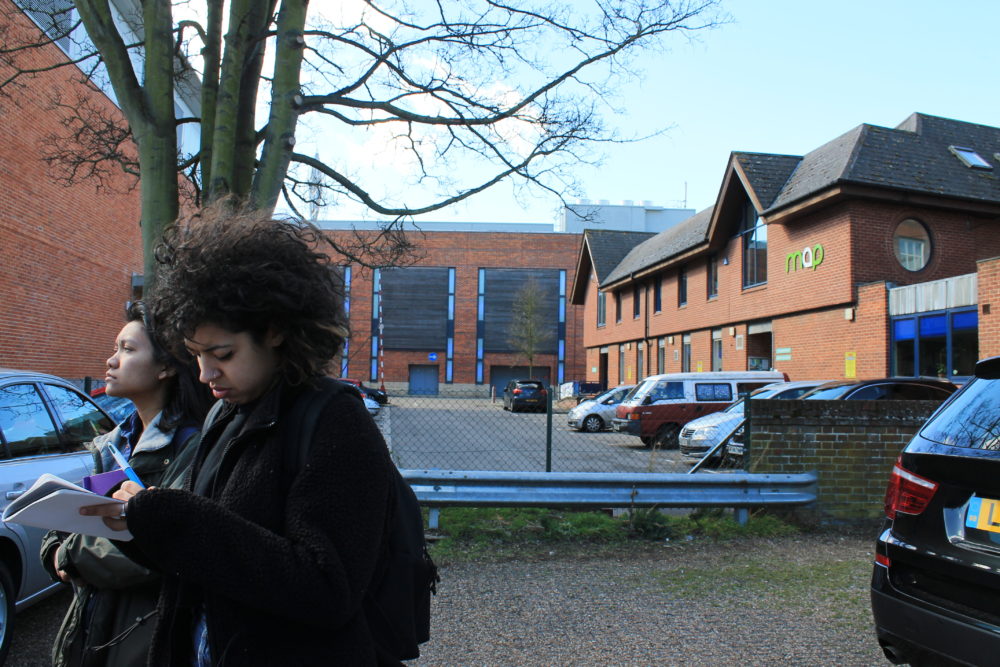
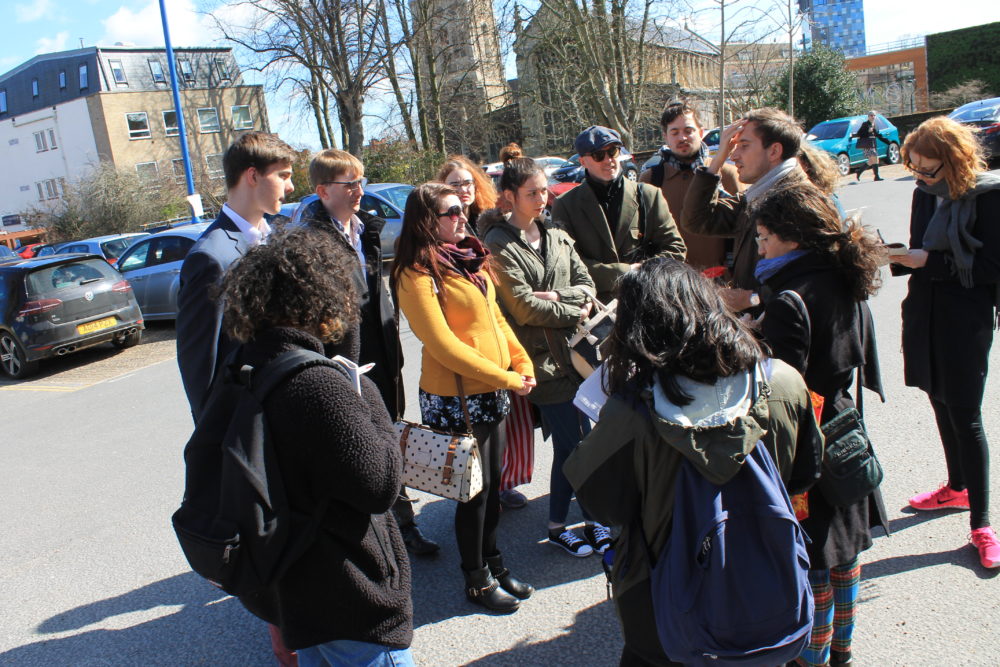
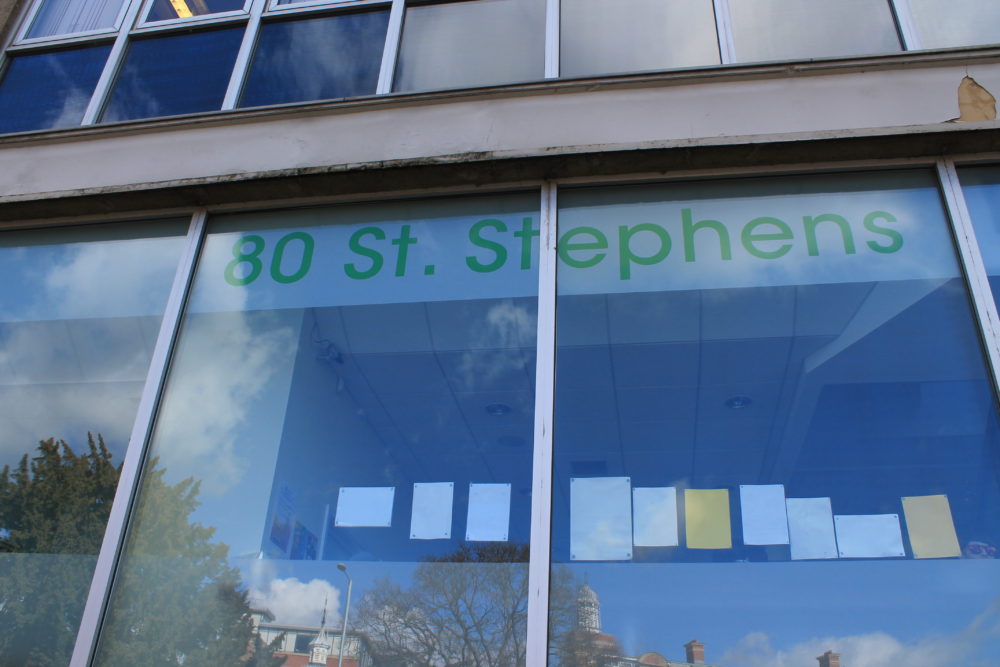
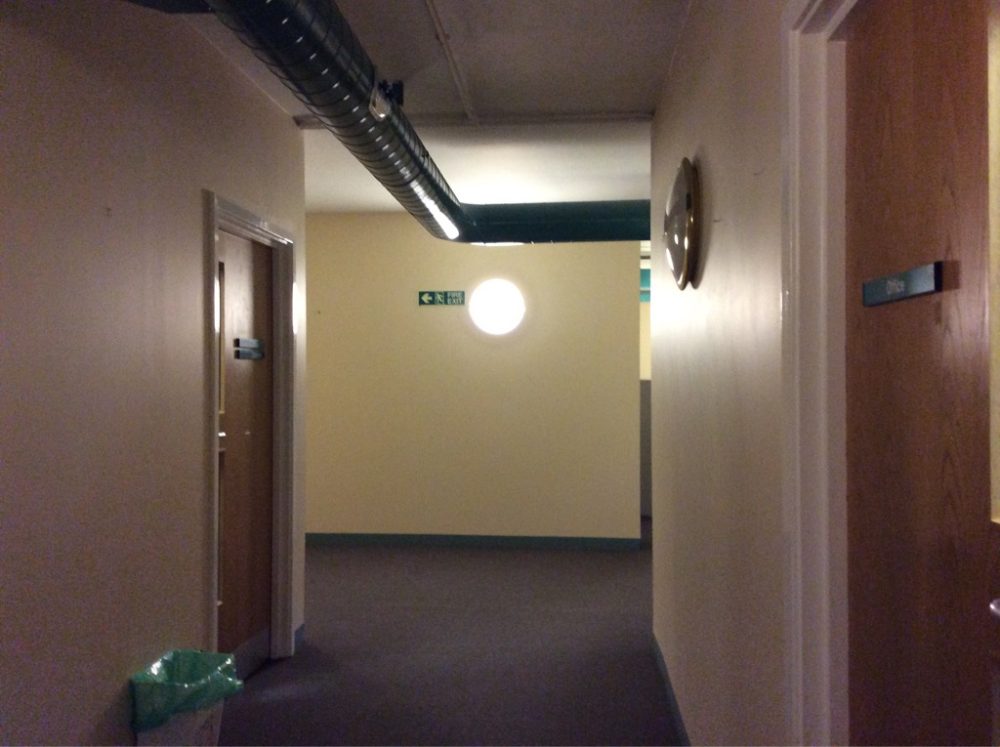
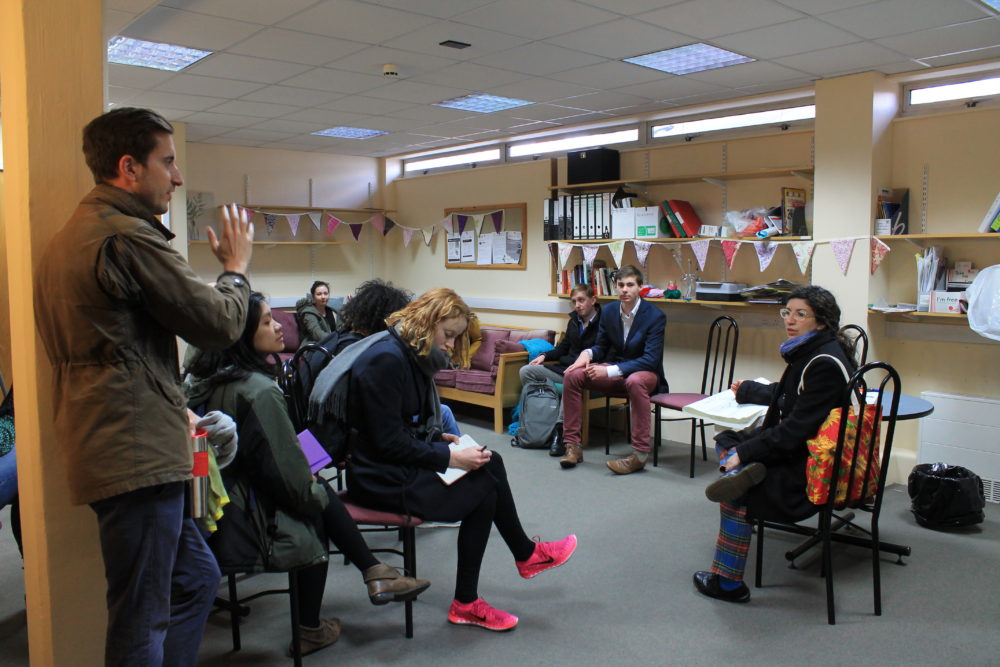
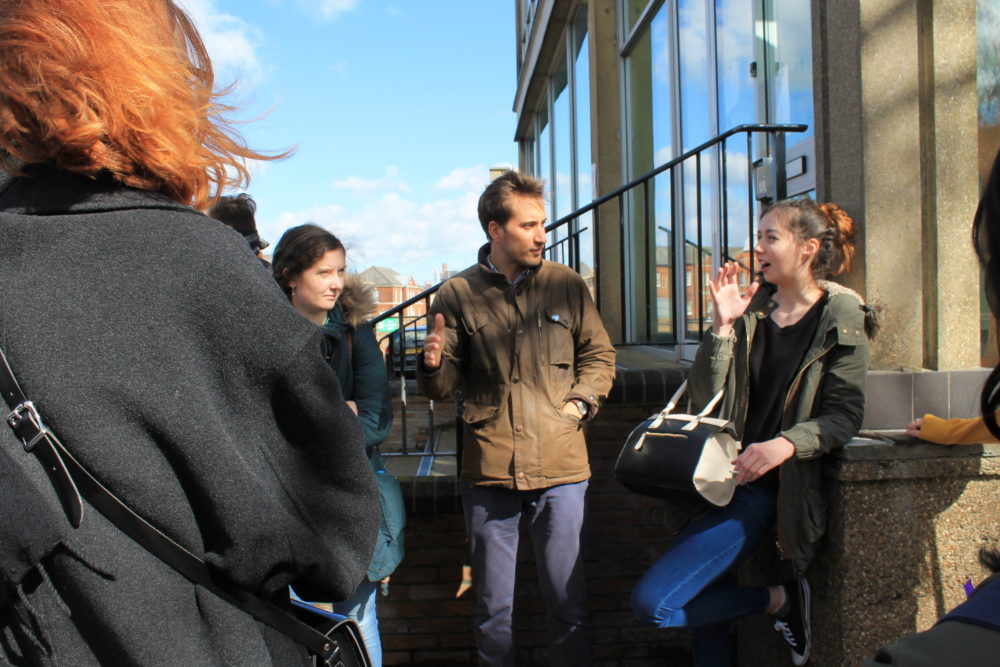
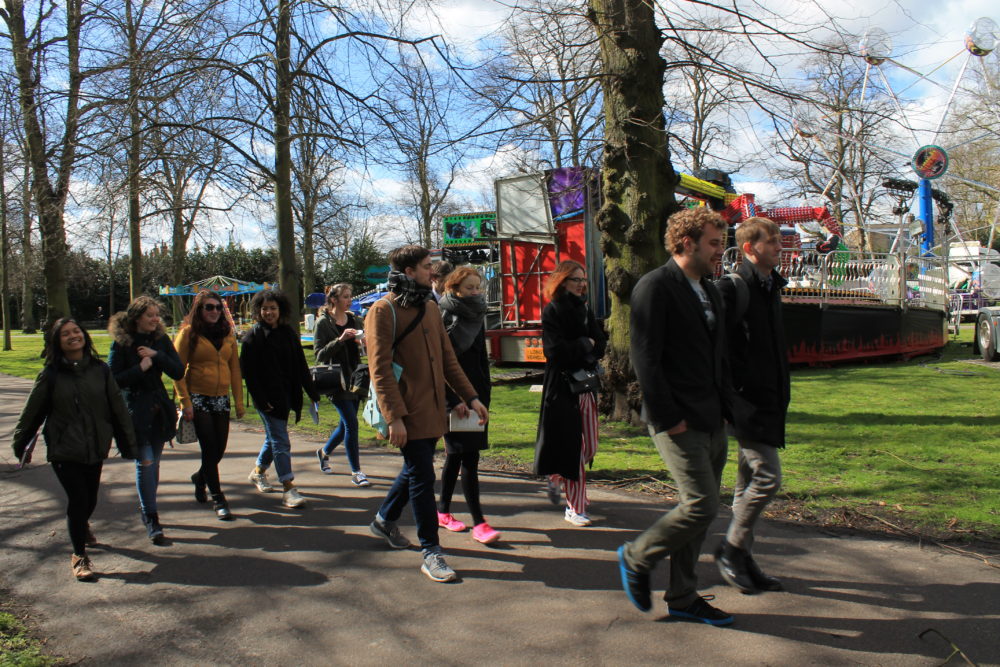
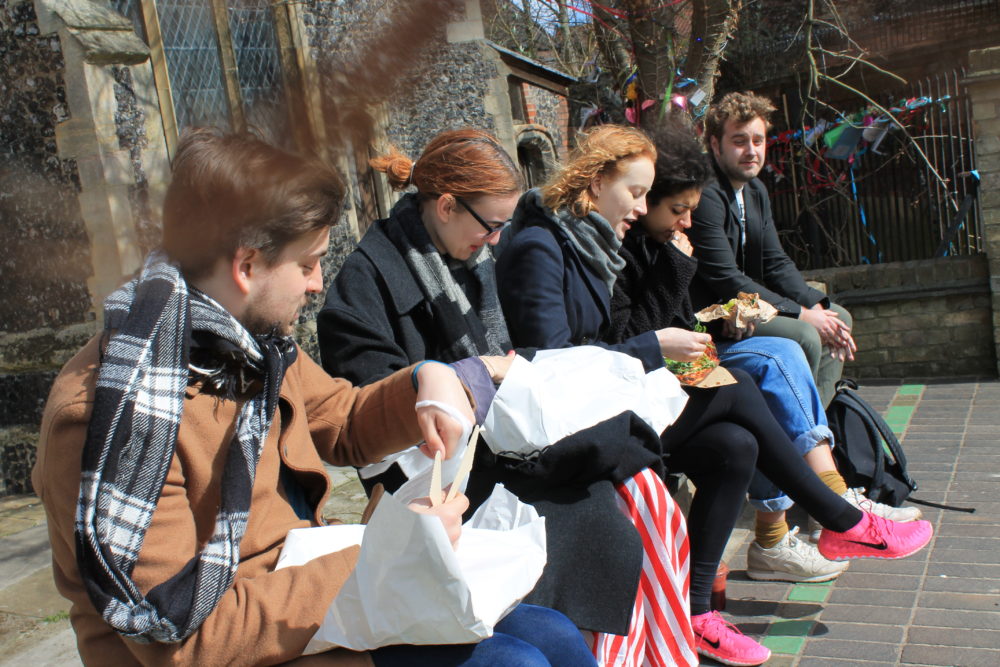
Day 2, afternoon: workshop 2 – places (digital)
Back at the studio, the NSFT Youth Council take the Early Lab team on a tour of online sites and resources (their territory, putting them in control).
In their attempt to manage their own conditions, the Youth Council members’ own experiences of using the internet and social media is sometimes positive but too frequently it is extremely negative.
It is acknowledged that young people are bound to turn to online for help at first, that despite the dangers they will attempt to self-diagnose, that this can’t be stopped and must be accepted. Therefore through SEO the better sites, social media and digital resources need to be pushed to the top of the search engine lists pushing the potentially dangerous sites (pro-anorexia etc.) further down. However, according to the Youth Council, the design of the better sites have young visitors thinking that these sites are not intended for them – they don’t speak in their voice. The conclusion is that these sites need to be redesigned if they are to have any chance of functioning as intended and be supportive online communities young people will want to join.
All agreed that any new vision of a transformed youth mental health service will depend on an integrated digital strategy if it is to have any chance of succeeding.
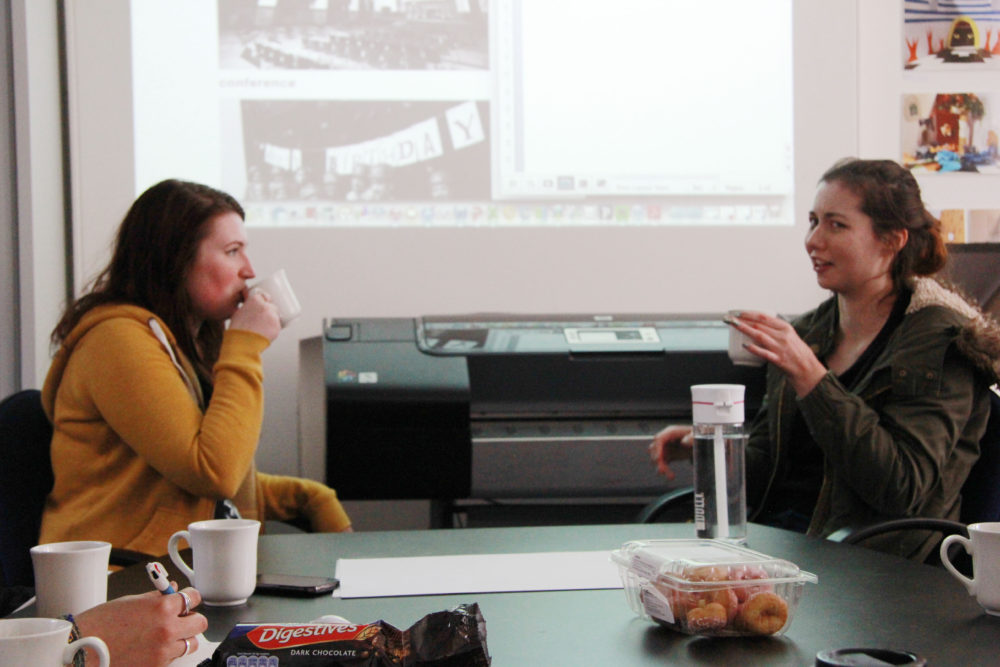
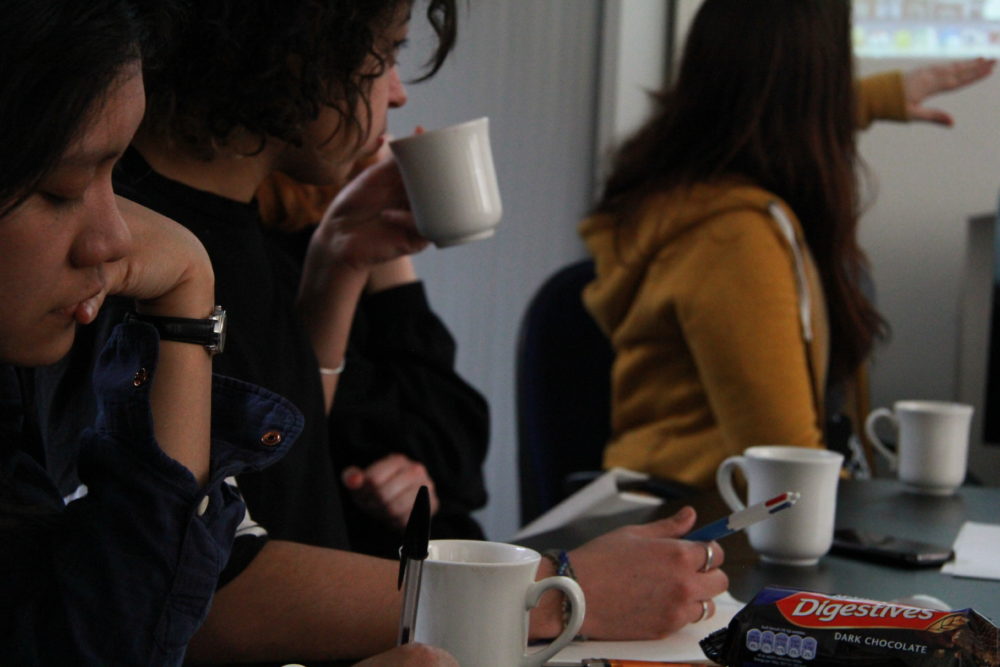
Day 2, evening: team debrief
At the end of each day the Early Lab team gathered in a local pub for a debrief of the days actions. This provided an opportunity for each team member to share with the rest of the group how they were handling the experience, compare notes and support each other.
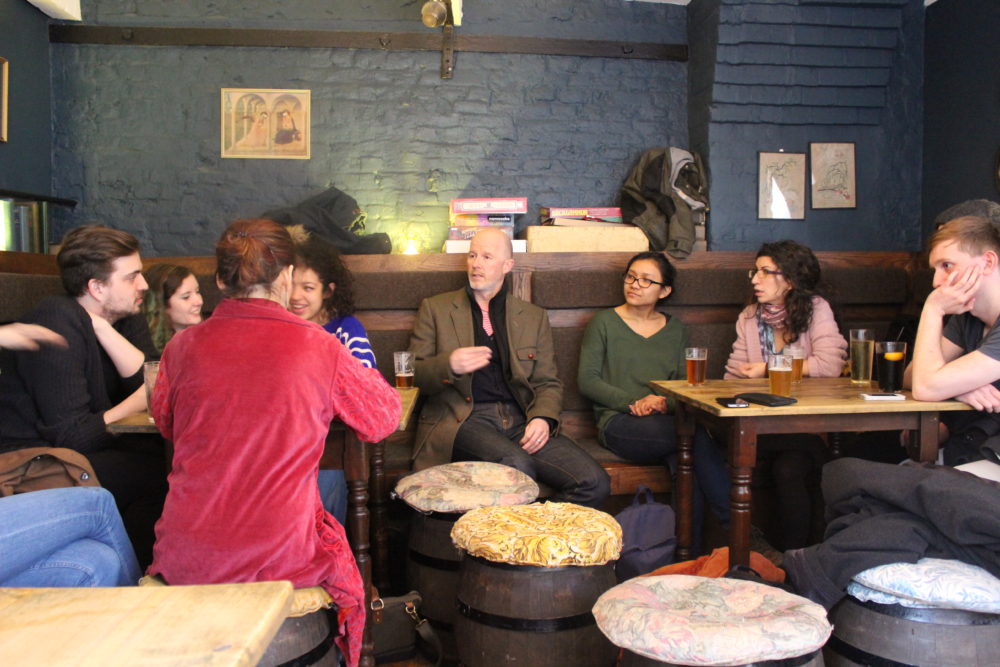
Day 3, morning: workshop A – people
On the morning of day 3 Early Lab ran a workshop with NSFT youth mental health service clinicians. The three hour session began with an asset mapping exercise. The clinicians were split into three groups of three, (with one Early Lab student team member each) and asked to spend an hour mapping support networks around service users focussing on early stage access to services. For deliberate contrast, the clinicians were then shown the woven canvas artworks depicting the Youth Council member’s own personal networks of support made in workshop 1. After which the clinicians then had 45 minutes to further develop their support network maps in the light of having taken in the service user perspective on this.
Each of the three groups sketched out their asset maps on sheets of newsprint paper that were large enough, (covering the entirety of their tables), to encourage co-creation.
In the weeks following the field trip back in London, the three Early Lab team workshop group hosts would spend whole sessions explaining the content on these giant sheets to the rest of the team. Insight from these would make significant contributions to the final research findings document that would be presented to NSFT senior commissioners in four months time.
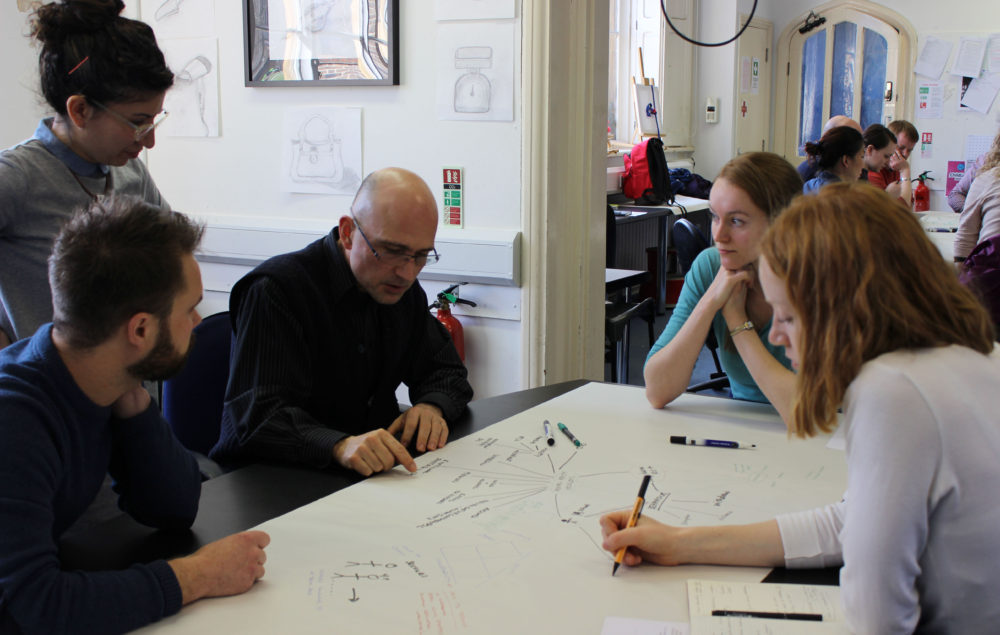
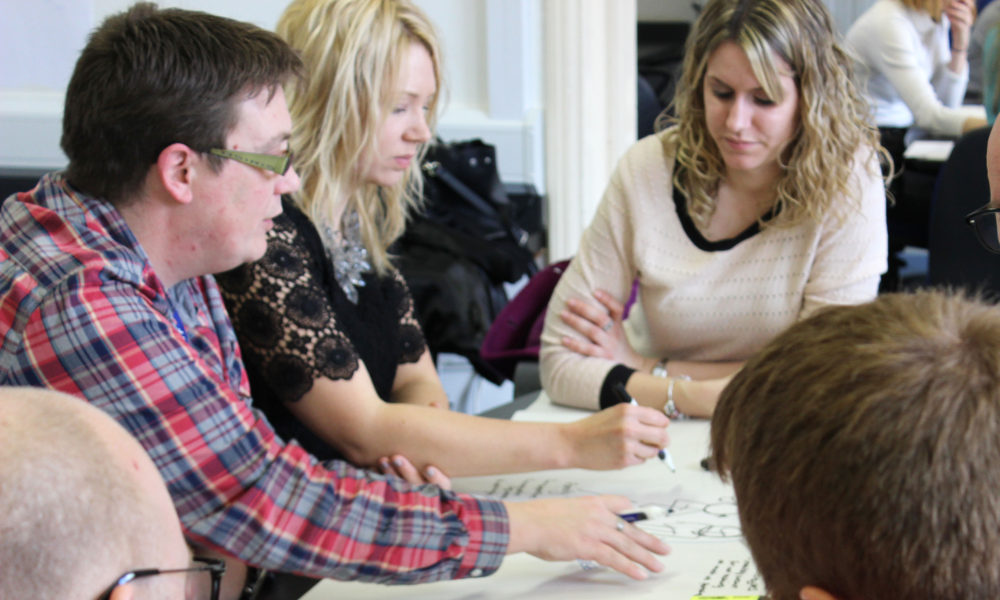
Workshop A participants
Group 1
- Sam Harbrow, Psychological Wellbeing Practitioner, Wellbeing Service, NSFT
- Xavier Coll, Consultant Psychologist Norwich Youth Team, NSFT
- Brioney Gee, Assistant Psychologist, PRODIGY research trial, NSFT
- Amira Prescott, Early Lab student team member
Group 2
- Bill Belton, Caseworker, Young People in Mind, Great Yarmouth
- Jenna Saunders, MINT, Norwich
- Emma Burton, Assistant Psychologist, Norwich EI Team, NSFT
- Caroline Yan Zheng, Early Lab student team member
Group 3
- Catherine Kilbey, Occupational Therapist, Great Yarmouth Youth Team, NSFT
- Sam Witham, Great Yarmouth Youth Team MHP, NSFT
- Gary Pitcher, Carers’ Support Worker, Great Yarmouth Youth Team, NSFT
- Delina Evans, Early Lab student team member
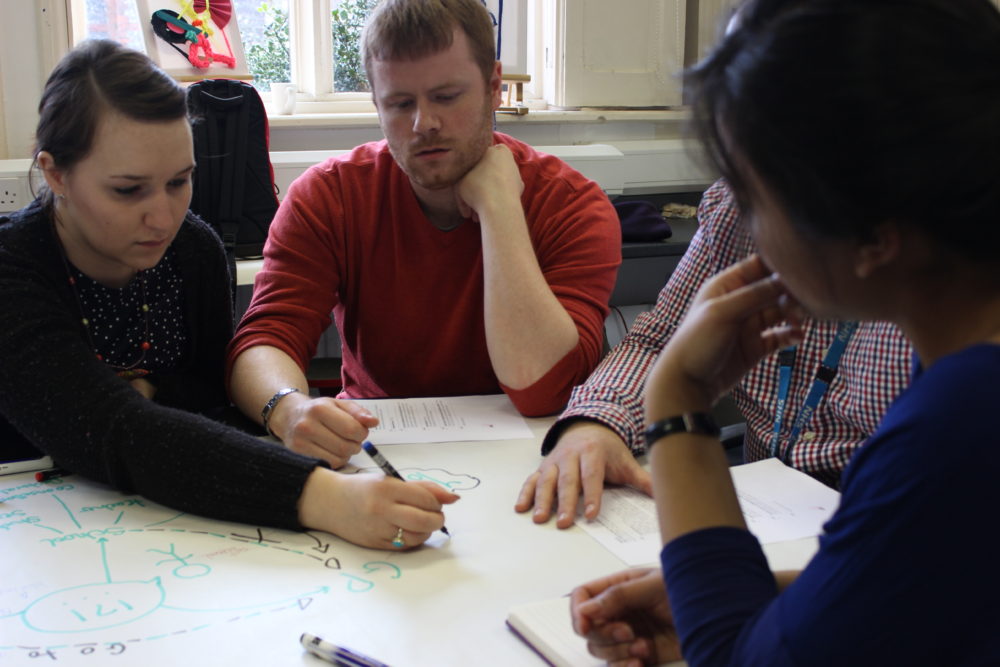
Day 4, morning: workshop B – stories
On the morning of day 4 Early Lab ran a workshop with NSFT youth mental health service managers. The three hour session began with a storyboarding exercise. The managers were split into three groups of three or four, (with one Early Lab student team member each) and asked to spend the first hour sketching out a story of ideal (first time) service access. For deliberate contrast they were then taken to the studios upstairs to view in-progress animation work being created by the Youth Council in collaboration with Early Lab student team members in workshop 4. These animations told the stories of the Youth Council member’s own experience of access to services. After which the managers then had 45 minutes to further develop their storyboards in the light of having taken in the service users’ stories of access to services before presenting them.
Managers within each of the three groups discussed their service access story ideas together while receiving continuous visual feedback from an Early Lab student team member. As outsiders, with no knowledge of the system, Early Lab gave the managers the freedom to express their own personal views freely and they delighted in taking advantage of that making the workshop highly enjoyable for all.
In the weeks following the field trip back in London, the three Early Lab team workshop group hosts would spend whole sessions talking through the storyboards for the rest of the team. Insight from these would make significant contributions to the final research findings document that would be presented to NSFT senior commissioners in four months time.
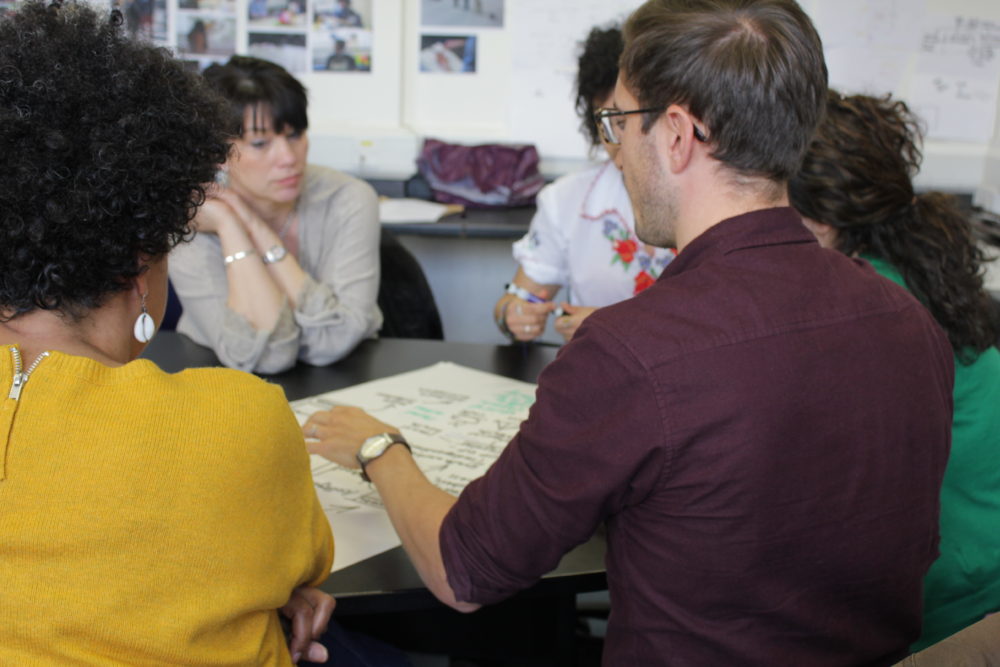
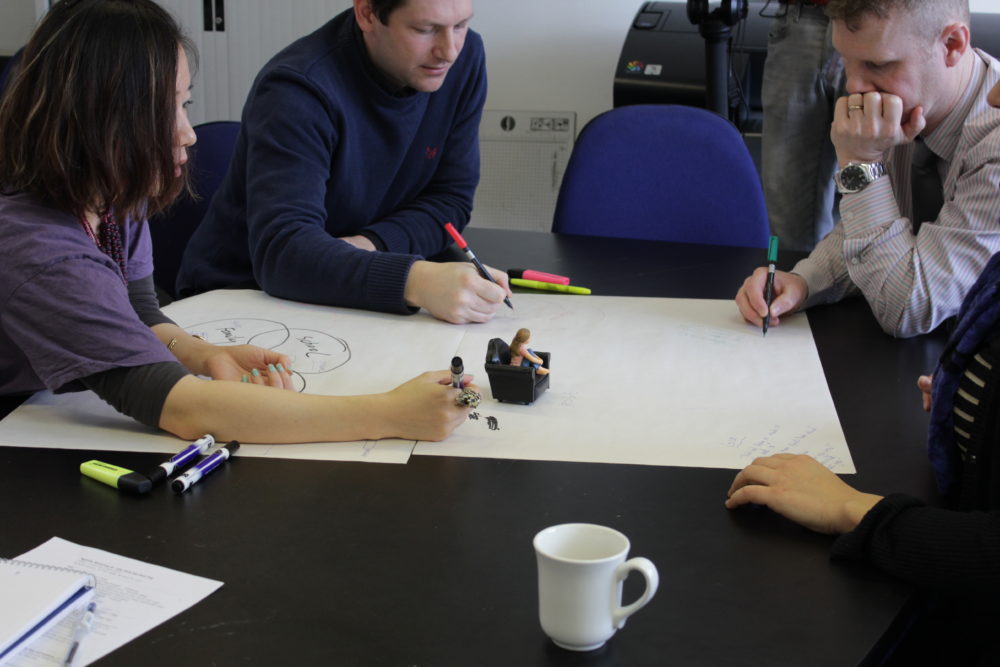
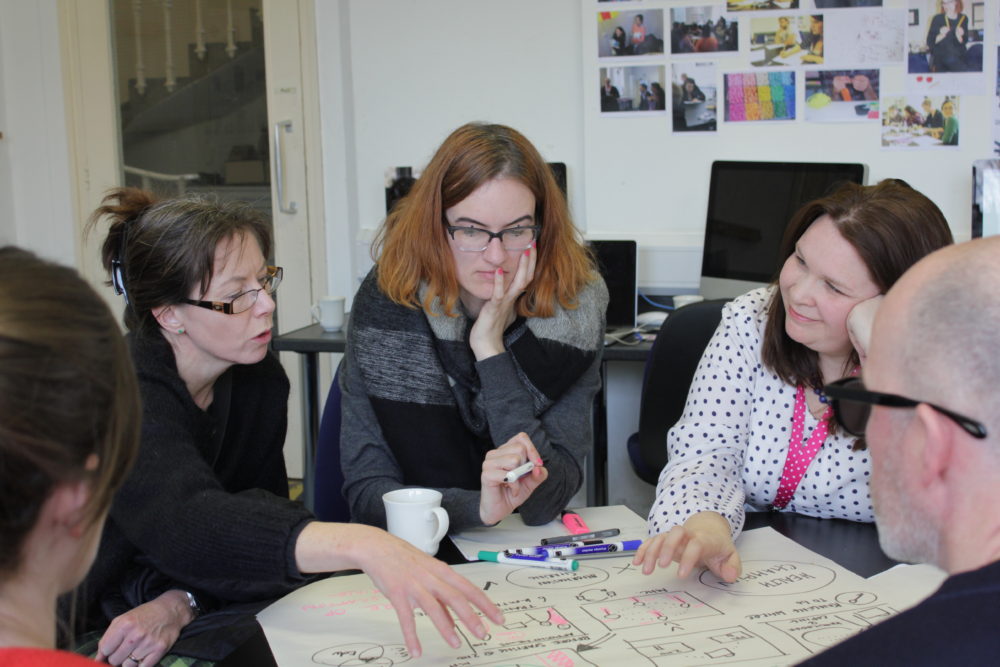
Workshop B participants
Johnny’s Story
- Tonia Mihill, Therapeutic Service Operations Manager, Map
- Nicky Shaw, Clinical Team Leader, Great Yarmouth & Waveney Youth Mental Health Team, NSFT
- Tim Clarke, Research Clinical Psychologist, NSFT
- Laura Wright, Early Lab student team member
Nagging Doubt Box story
- Rob Mack, Deputy Service Manager, NSFT
- Mike Purshouse, Early Intervention Manager, Early Help Hub
- Constantina Markides, Assistant Psychologist, NSFT
- Chris Butwright, Head of Joint Commissioning, Norfolk County Council Children’s Services
- Caroline Yan Zheng, Early Lab student team member
Lisa’s Story
- Sarah Maxwell, CAMHS Consultant Psychiatrist and Youth Clinical Lead
- Dr Sarah Flindall, Retained Children’s GP, Great Yarmouth & Waveney
- Kirsty Pitcher, Parenting Services Manager, The Benjamin Foundation
- Kat Thiel, Early Lab student team member
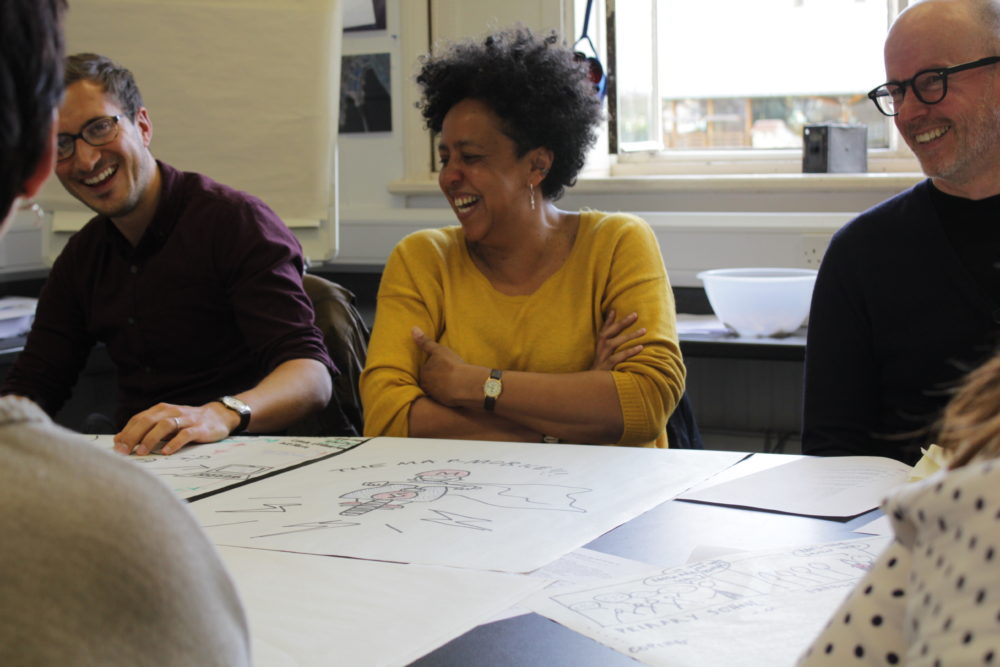
Above: Tonia Mihill, (Therapeutic Service Operations Manager at Map), describes her experience of participating in Workshop B. Early Lab field trip day 4, morning. Norwich, April 2015.
Above: Workshop B participant Tonia Mihill, (Therapeutic Service Operations Manager at Map), describes Map, the Mancroft Advice Project, a frontline youth support service with drop-ins in Norwich and Great Yarmouth. Early Lab field trip day 4, morning. Norwich, April 2015.
Days 3 & 4, workshop 3 & 4 – stories
On days 3 and 4 Early Lab worked with NSFT Youth Council members to help them tell stories of their personal experience of access to mental health services. Split into two groups, each including three Early Lab students, they spent the first day planning their stories and making them visual through storyboarding, set building and character modelling. They then spent the second day turning their stories into short animated films using the simple stop-motion technique.
The final two films, (together with the three canvases from day 1 woven with yarn depicting personal support networks), would be presented in a small exhibition celebrating the whole collaboration on the afternoon of day 4.
For the Youth Council members the social encounter of this animation workshop was an extremely positive one. Like the woven canvases on day 1, the process of externalising their experiences with the Early Lab students using a making activity, in this case making animations, proved cathartic. And again, the predominantly non-verbal making helped create an atmosphere of lightness and informality enabling participants to better handle the emotional weight of the issues in the stories they were bringing to life. Indeed, on day 4 we found several of them (service users and our students) skipping around the cathedral cloisters dressed in wigs and nightgowns. They had found the school dressing up box in the studio where they were working and that the Youth Council members felt relaxed enough and confident enough to dress up and paint their faces with the Early Lab students is testament to the benefits of making in this context, but mostly to the collaborative and social capabilities of the students.
The playful scene in the cloisters reminded all participants that the success of the collaboration was not all down to the work, so to speak. Every day of workshops was punctuated with a generous spread of food (put on by the students) shared at lunchtimes that became a social event taking over one of the workshop studios. Every workshop was broken into digestible chunks of activity fuelled by tea breaks stocked plentifully with tea, biscuits (and sometimes doughnuts). By the end of the week everyone was up for another social event that would enable all to celebrate the achievements of the week which in the end was less about the work produced (the animations and the canvases) and more about the elevated wellbeing of all participants together with of course a collective imaginary for a transformed mental health service for children and young people.
Following the field trip, the challenge would now be how to take this imaginary, shape it and present it compellingly to the region’s senior health commissioners and budget holders.
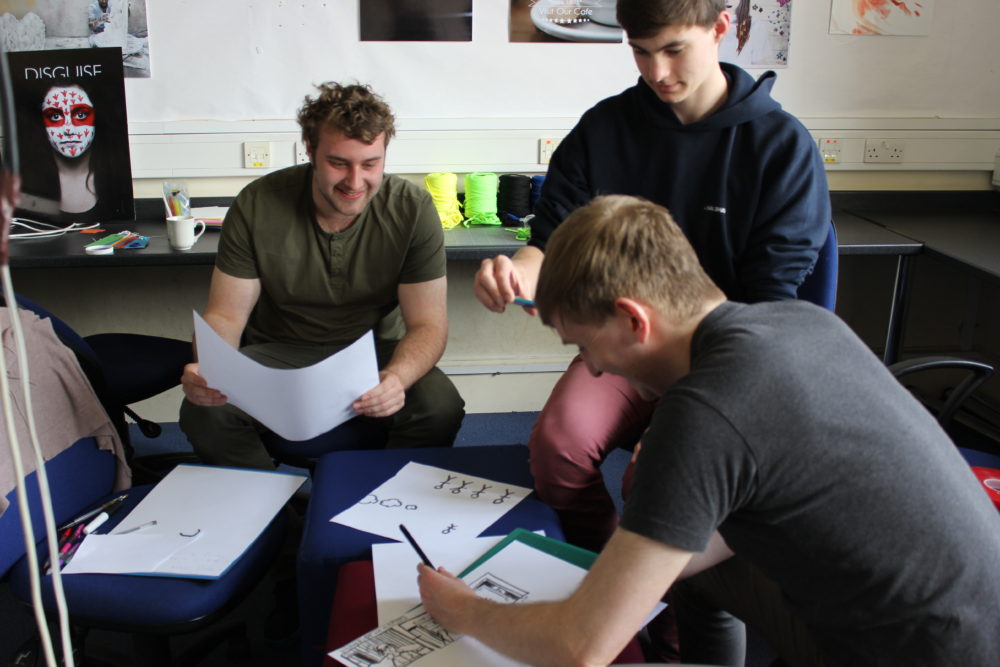
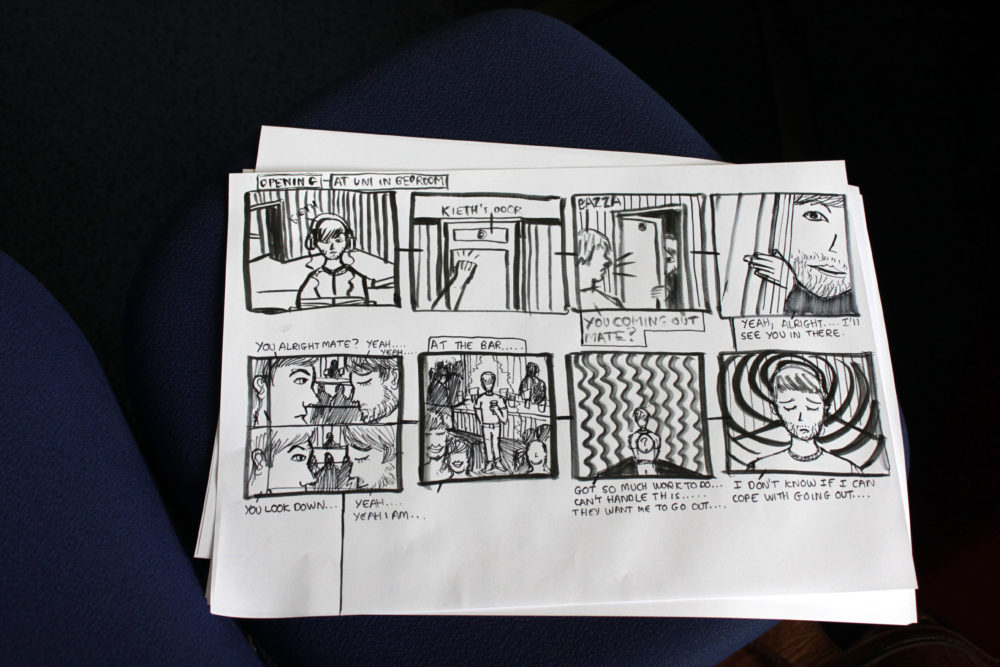
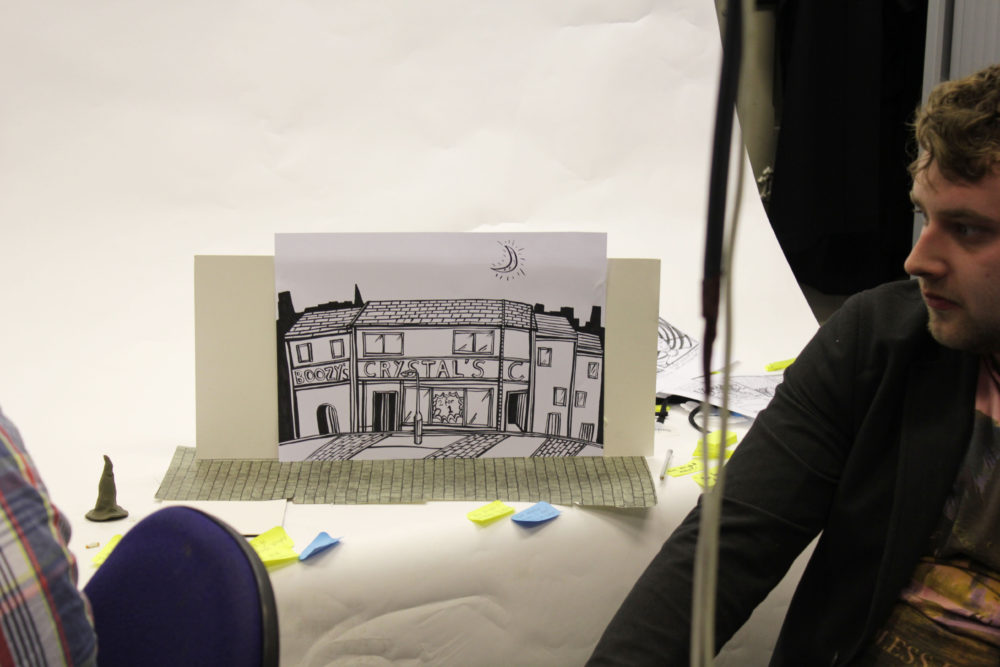
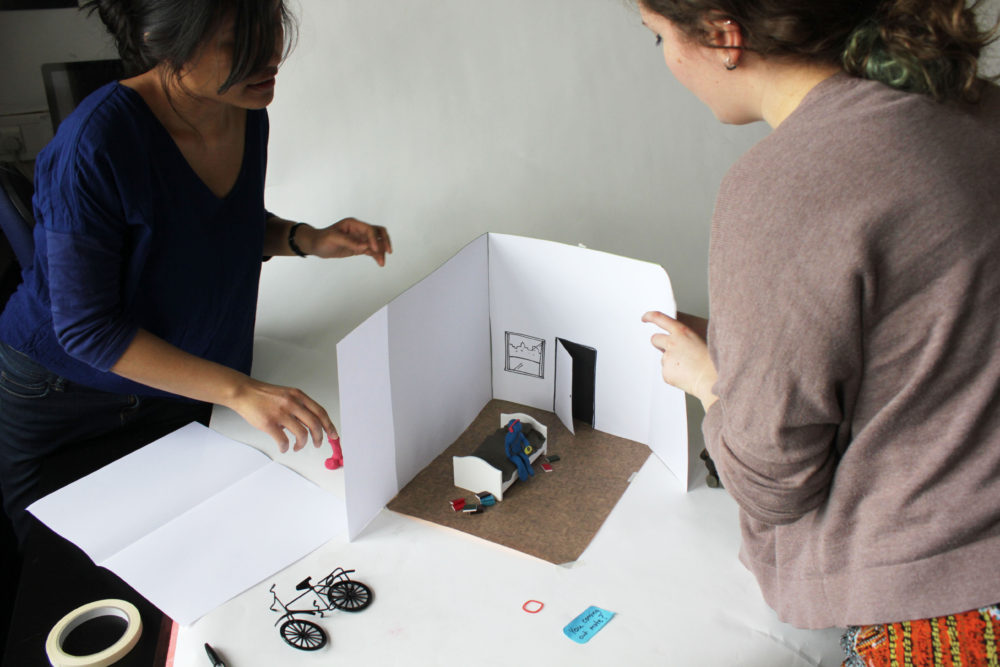
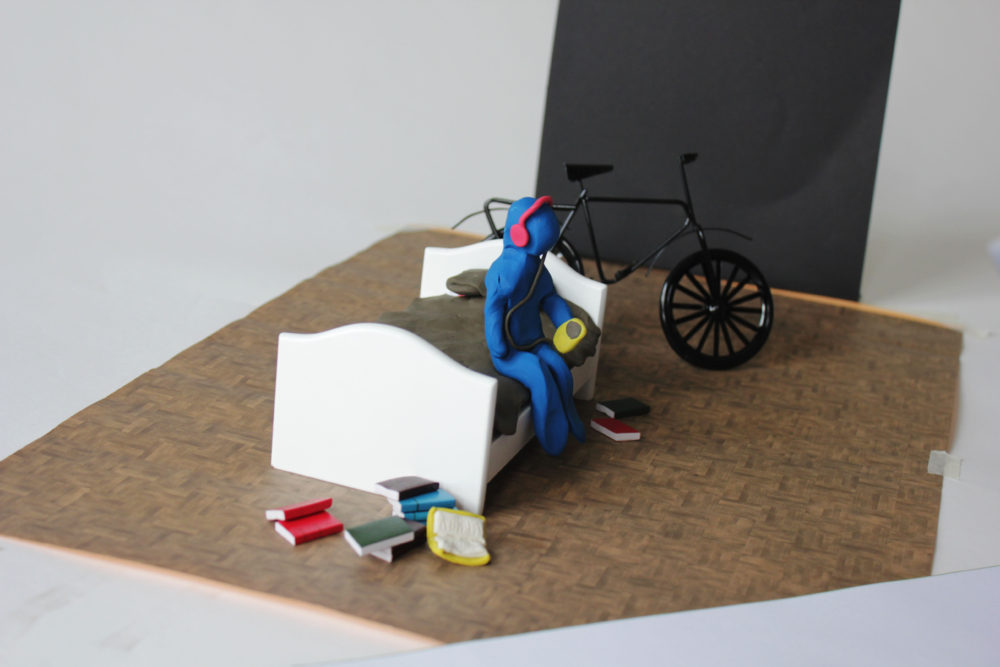
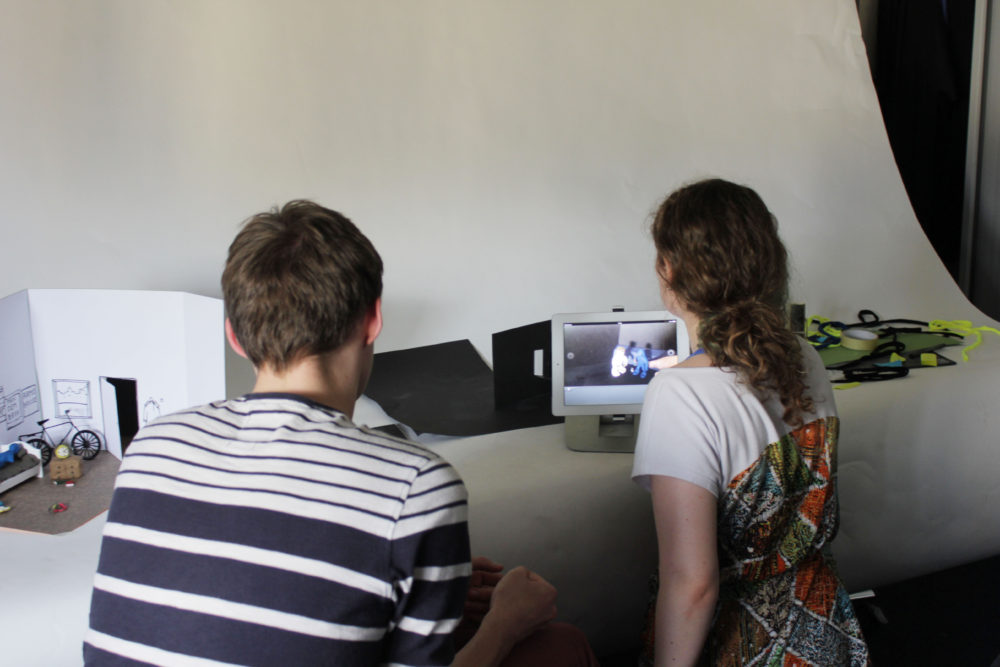
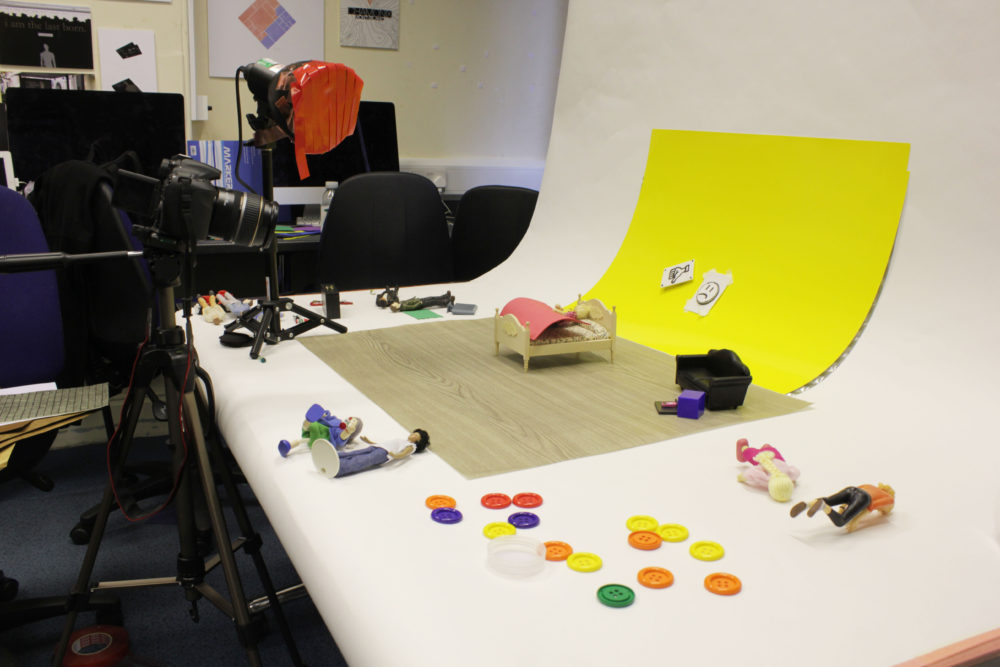
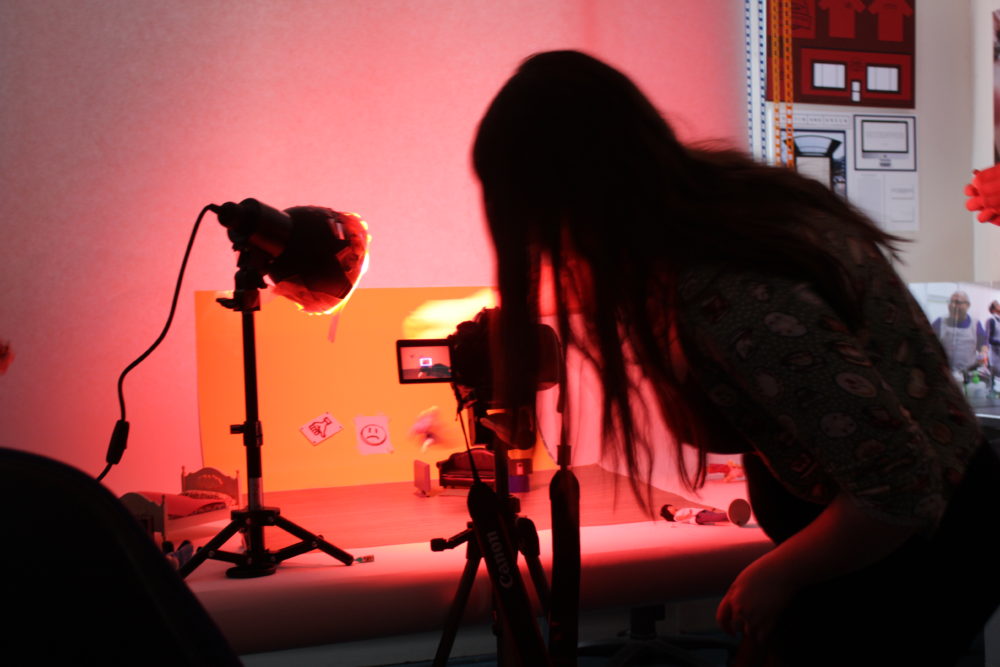
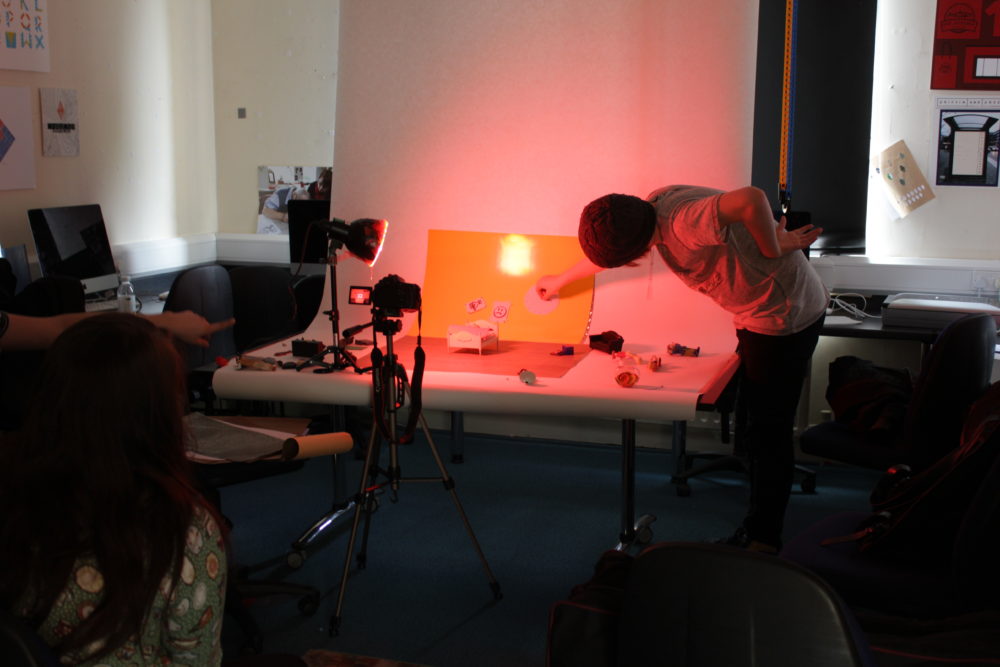
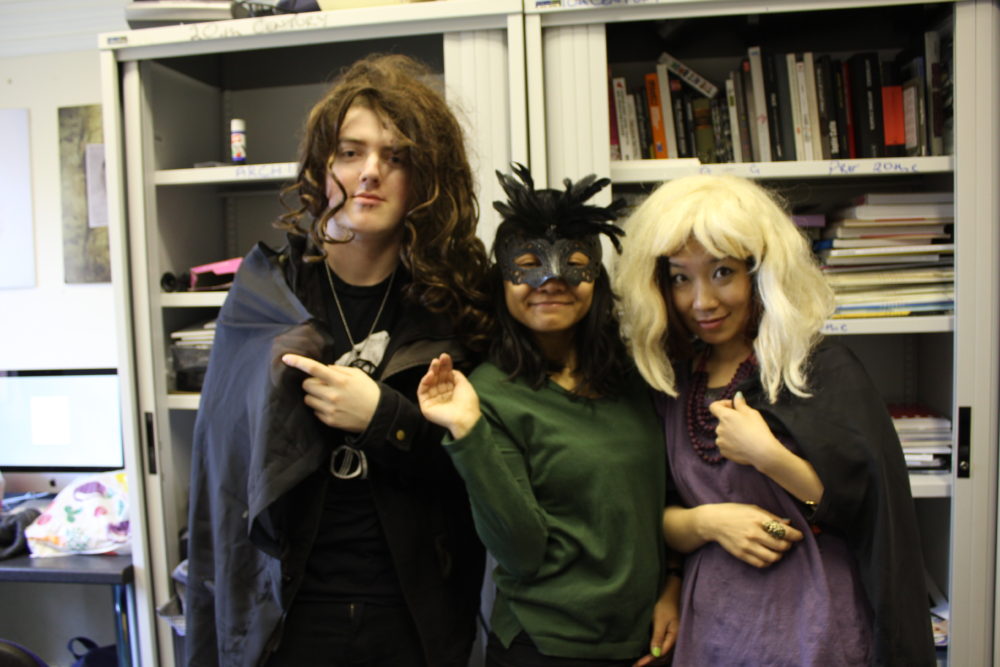
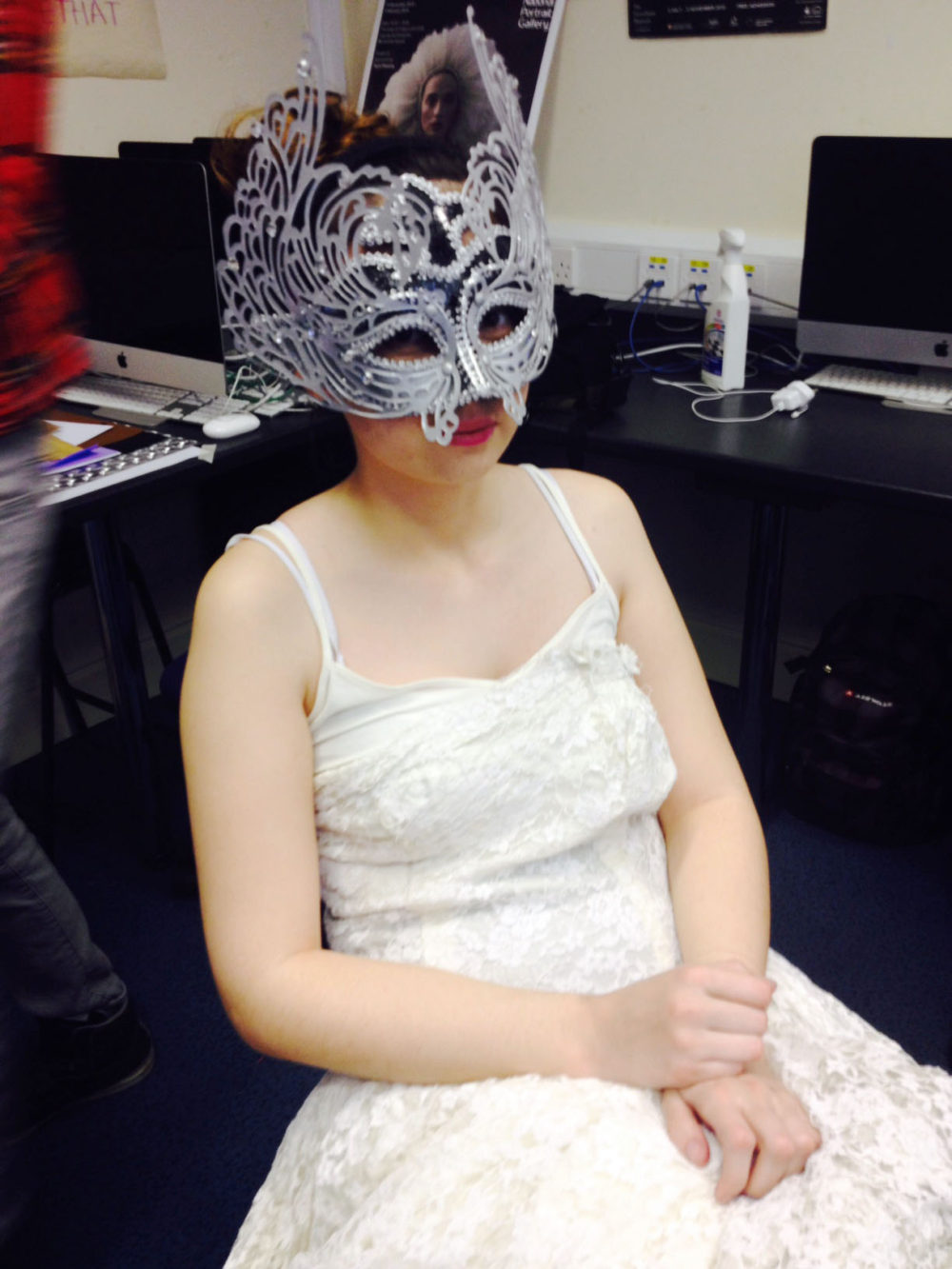
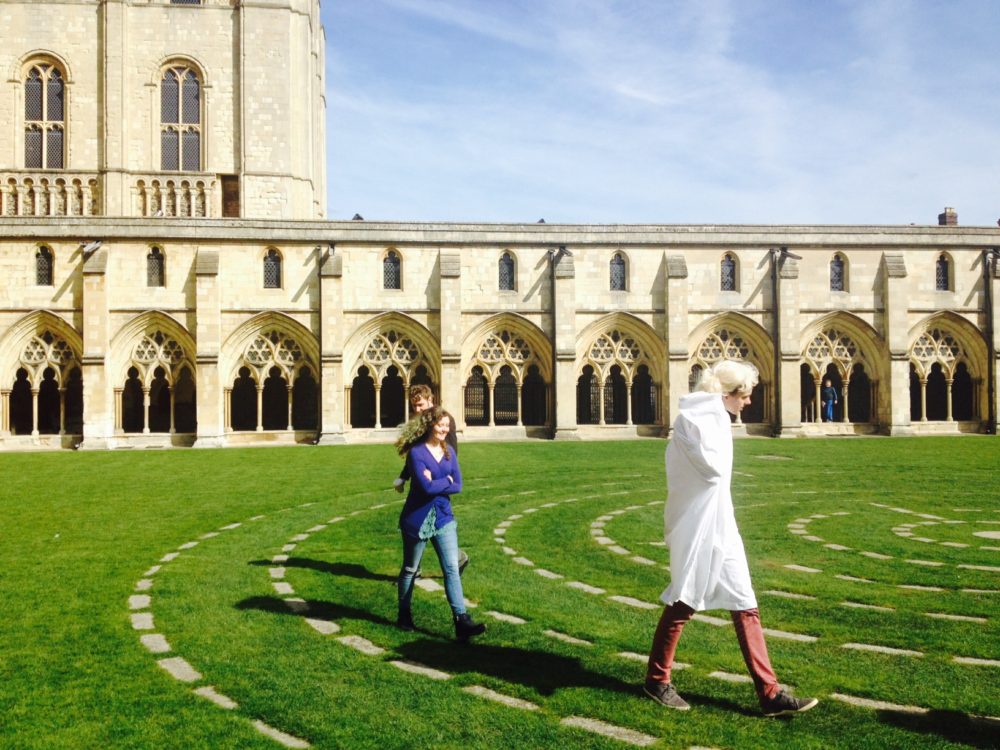
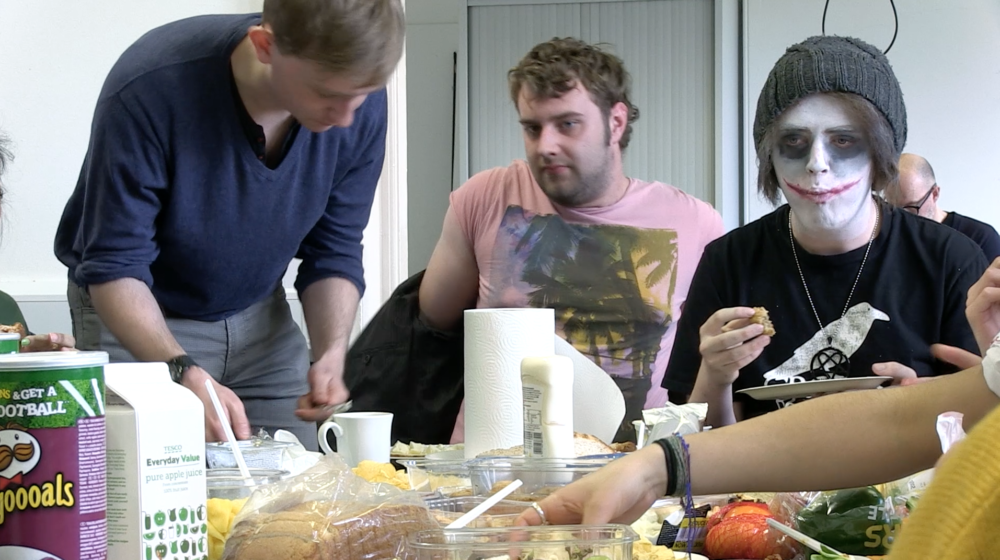
Above: Luke Taylor (NSFT Youth Council member) and Delina Evans (Early Lab student team member) discuss their experience of the field trip with specific reference to making the canvas that depicts Luke’s personal network of support map in Workshop 1. Field trip day 4. Norwich, April 2015.
Above: Matt Ferguson (Early Lab student team member) shares his perspective on the Early Lab approach and the progressive role of design in the context of mental health service provision. Field trip day 4. Norwich, April 2015.
Above: Caroline Yan Zheng (Early Lab student team member) on why she thinks design can be a strong social force. Field trip day 4. Norwich, April 2015.
Above: Jonathan Balshaw (NSFT Youth Council member) on the importance of new and vibrant approaches to communication appropriate to young people. Field trip day 4. Norwich, April 2015.
Above: Amira Prescott (Early Lab student team member) on the importance of not just questioning the design brief but of getting involved in processes that precede it. Field trip day 4. Norwich, April 2015.
Above: Imogen Hearn (Early Lab student team member) talks about her surprise at what she learnt about herself as a result of her experience of working with others on the field trip. Field trip day 4. Norwich, April 2015.
Day 4, exhibition
It was important that we end the week of workshops with NSFT with a positive statement, a celebration of everyone’s efforts. We did this by holding an impromptu exhibition in a chapel in the cathedral close. This enabled the Youth Council members and Early Lab students to present their animations and the woven support network canvases from earlier in the week. In keeping with events during the week, the exhibition became a fun, social event very well furnished with refreshments. The team found a church organ hidden in a corner which two students and a Youth Council member played. The was also a drum kit. All of which contributed to a jolly atmosphere fitting for celebrating a very successful week.
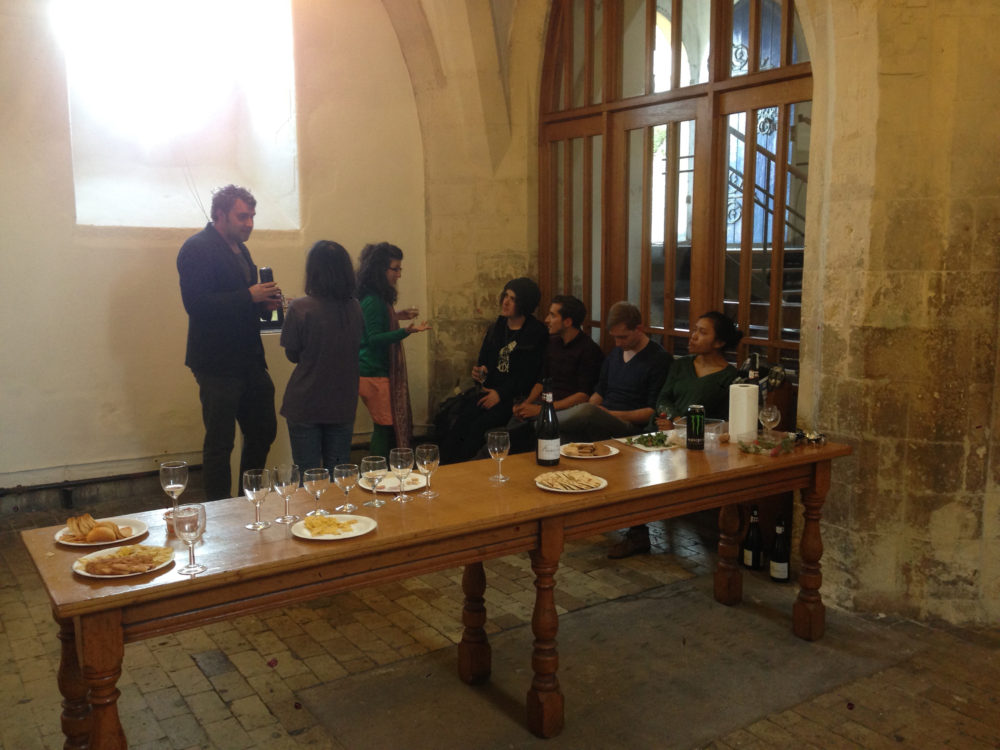
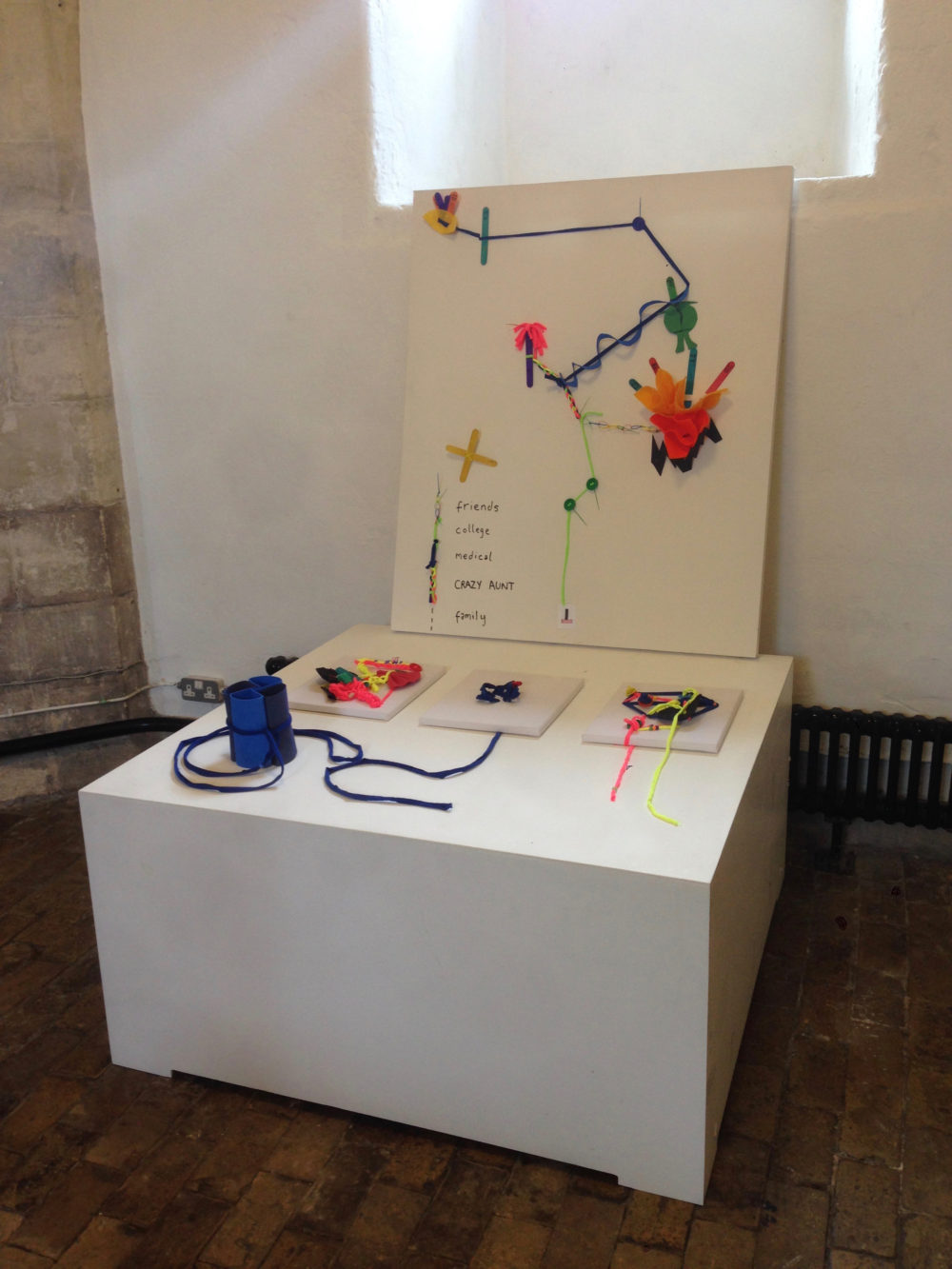
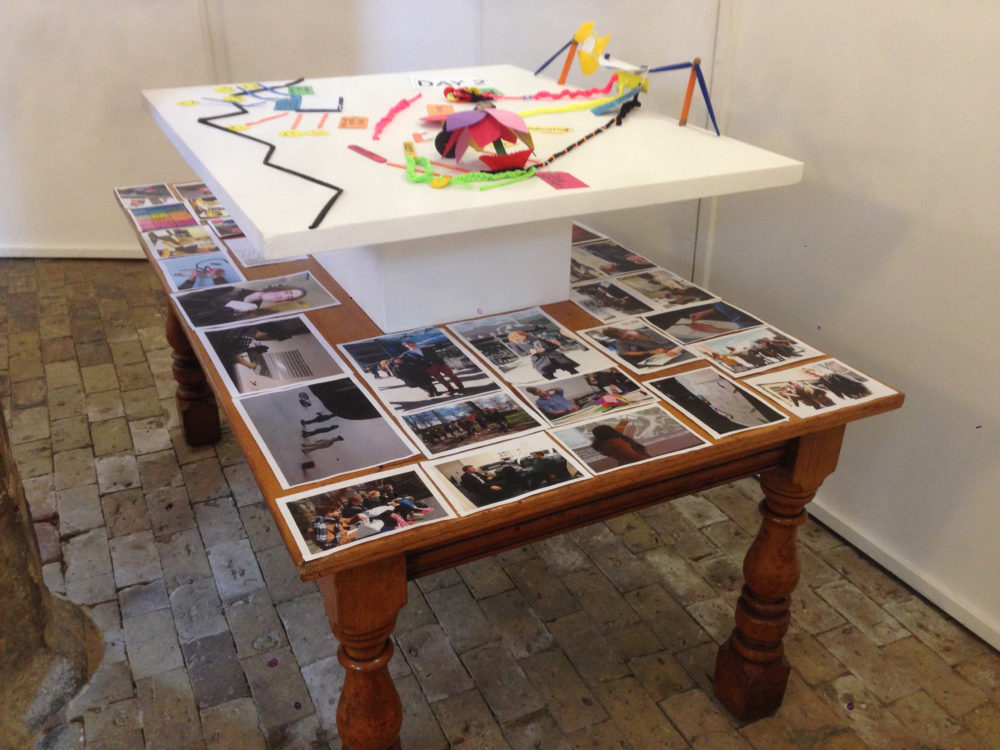
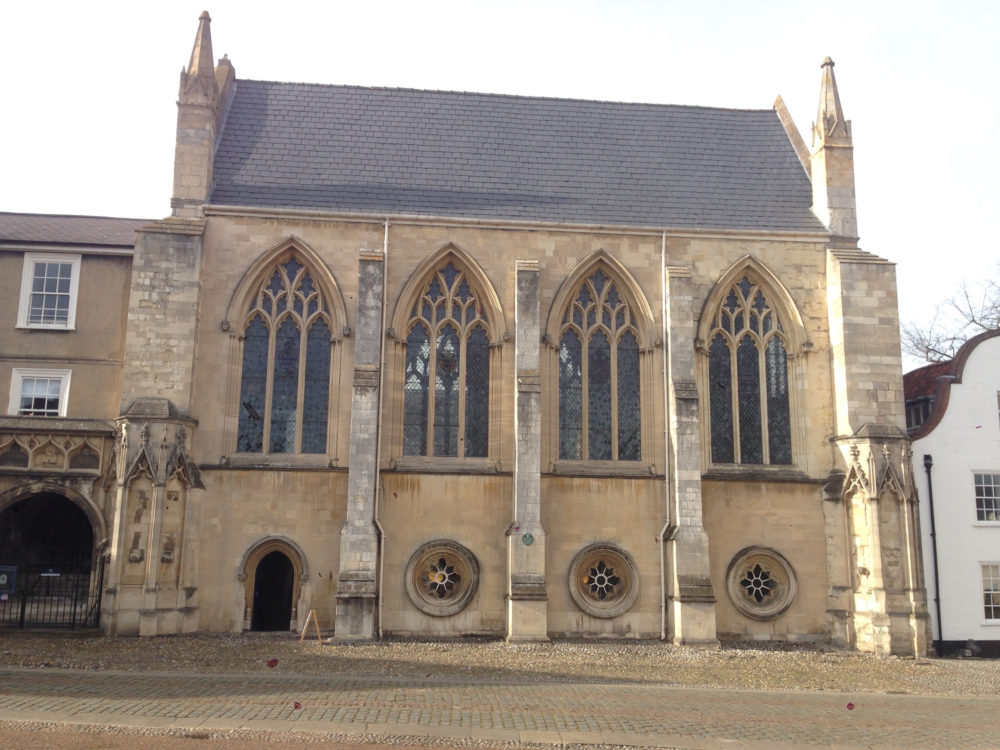
Above: a trio of Early Lab team and NSFT Youth Council members play out the week at the wrap-exhibition to mark the end of the Early Lab field trip. Norwich, April 2015.
Day 5, debrief
The Early Lab team marked the end of the field trip with a mini-bus journey out from Norwich to take in the beautiful North Norfolk coast. The week of workshops had gone better than anyone dare imagine and although highly enjoyable the week had taken a lot from the team. It was important that they had a day of gentle reflection in peaceful surroundings before heading back to London. The trip included walking (running and jumping) on the dunes at Holkham, a fish and chip lunch on the quayside at Wells and a debrief meeting at the Dun Cow in Salthouse overlooking a golden expanse of coastal marshland. At this meeting we set the date for the first of our post-field trip planning meetings in two weeks time, the other side of easter. We would return to London the next day.
